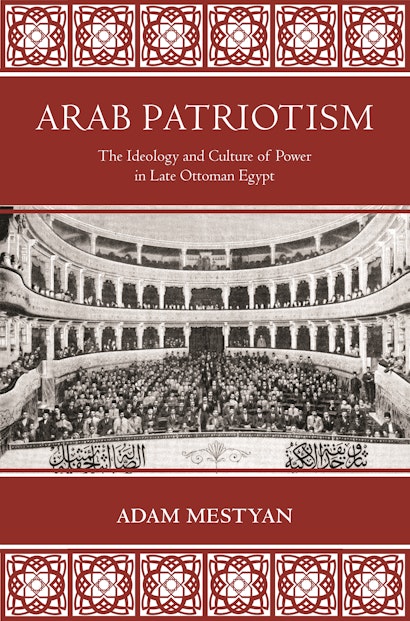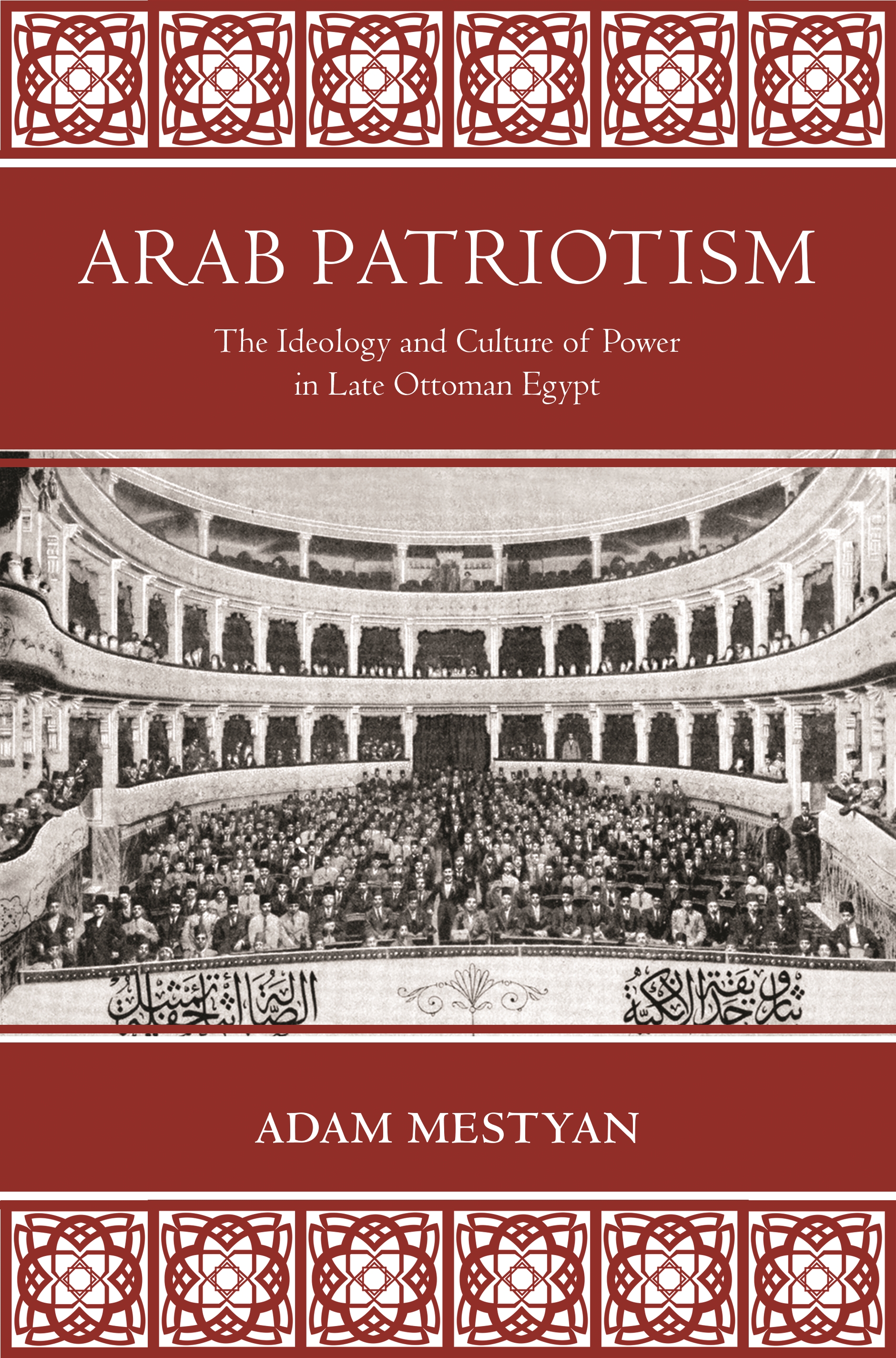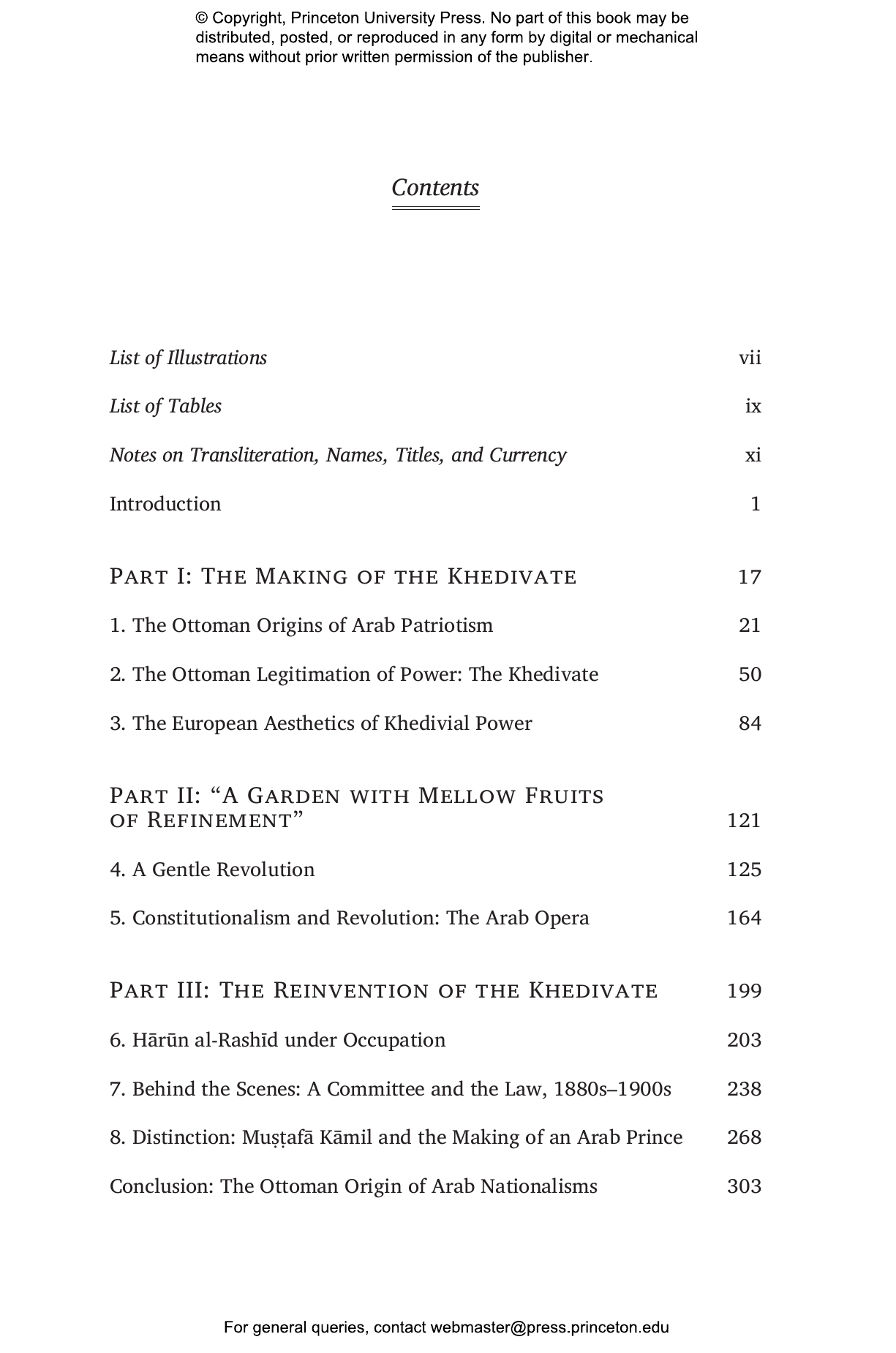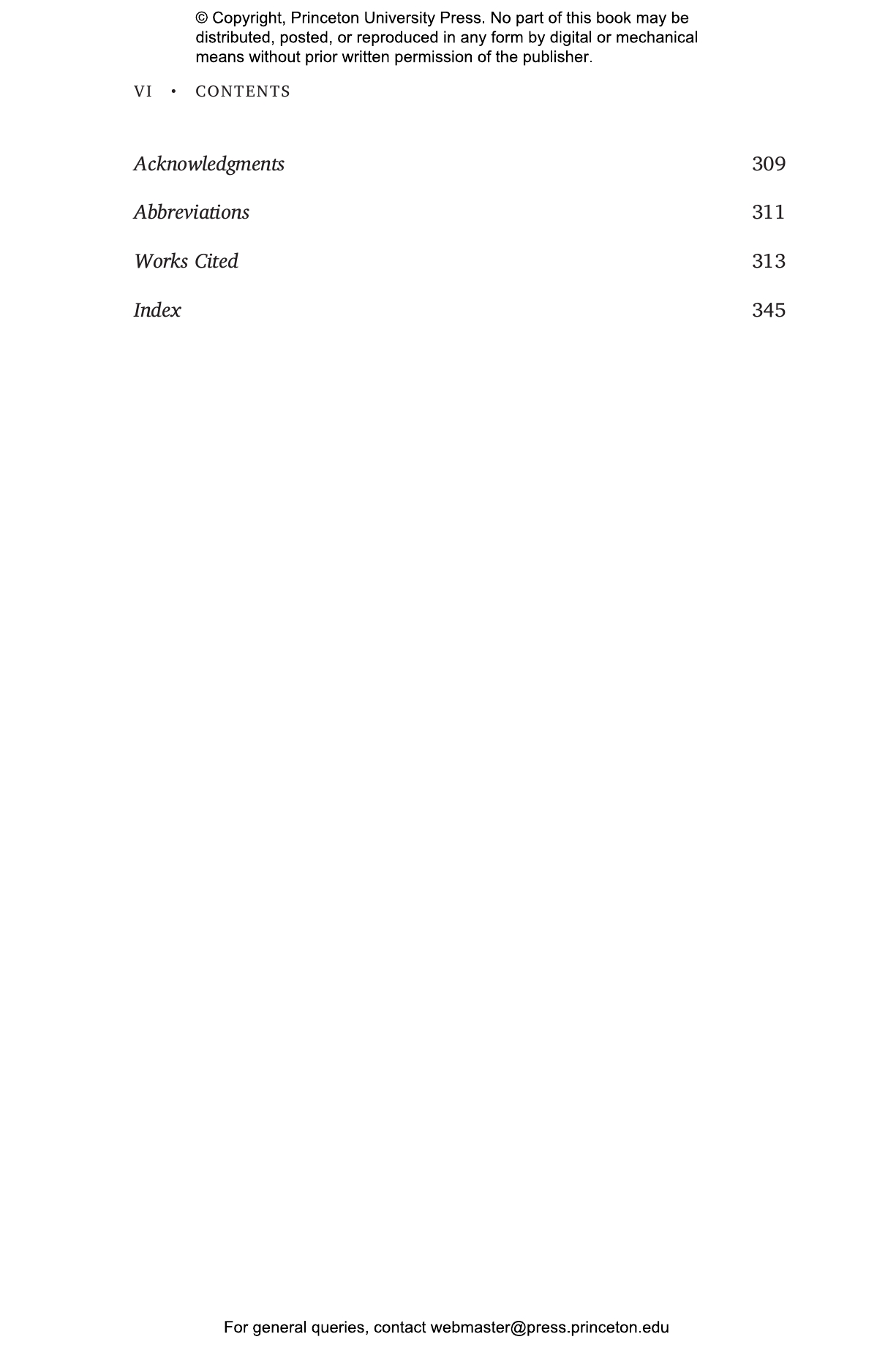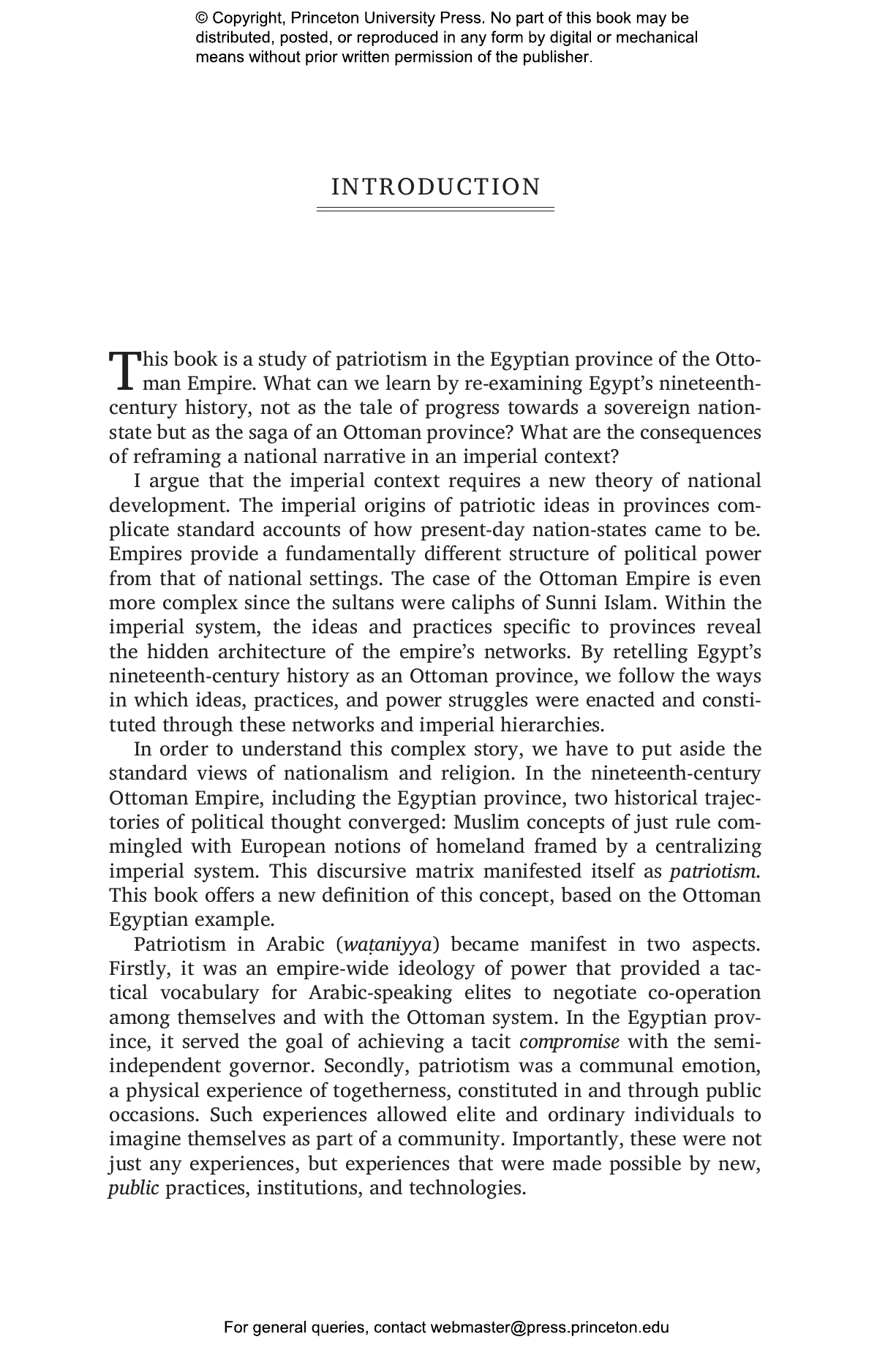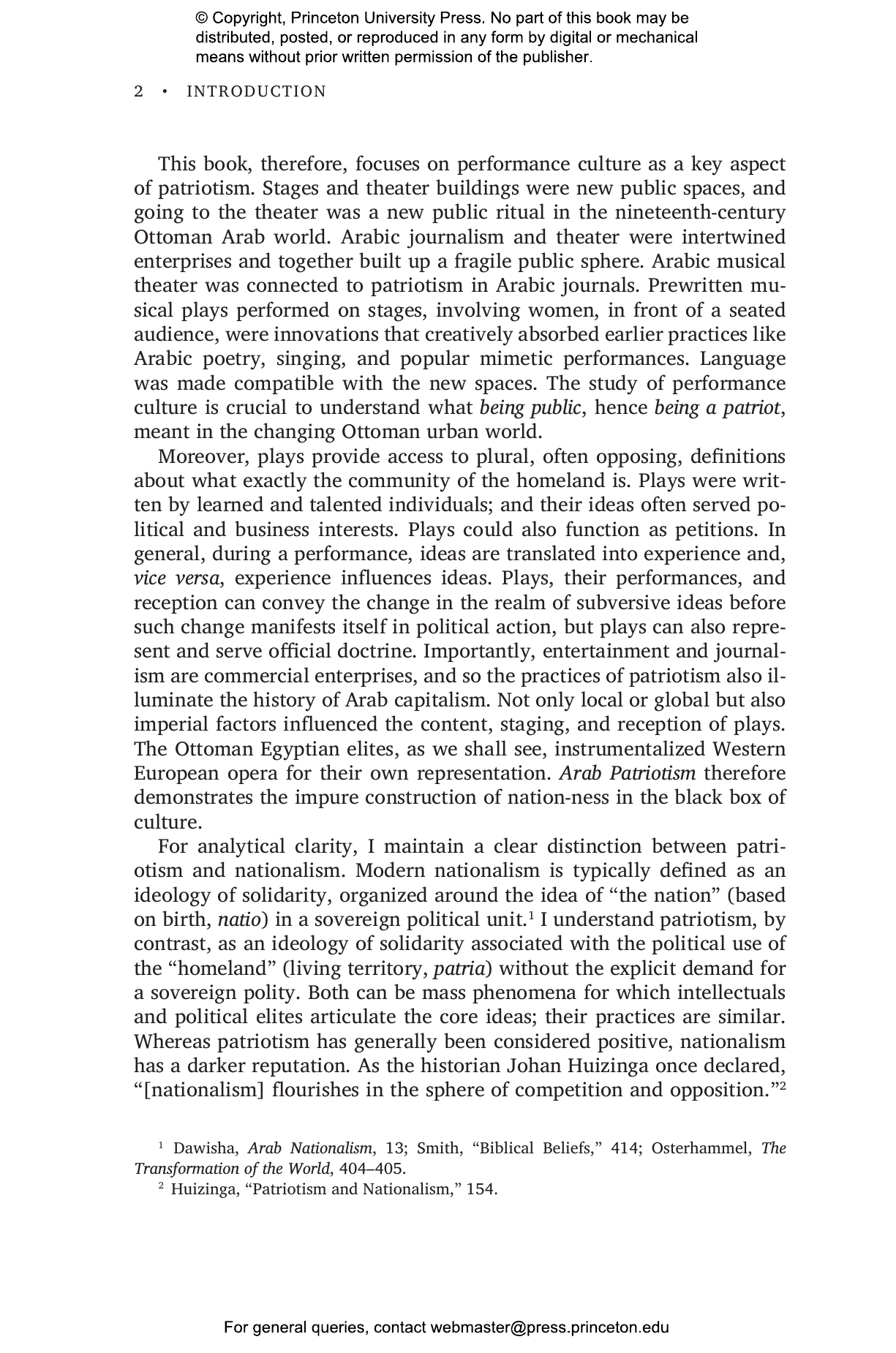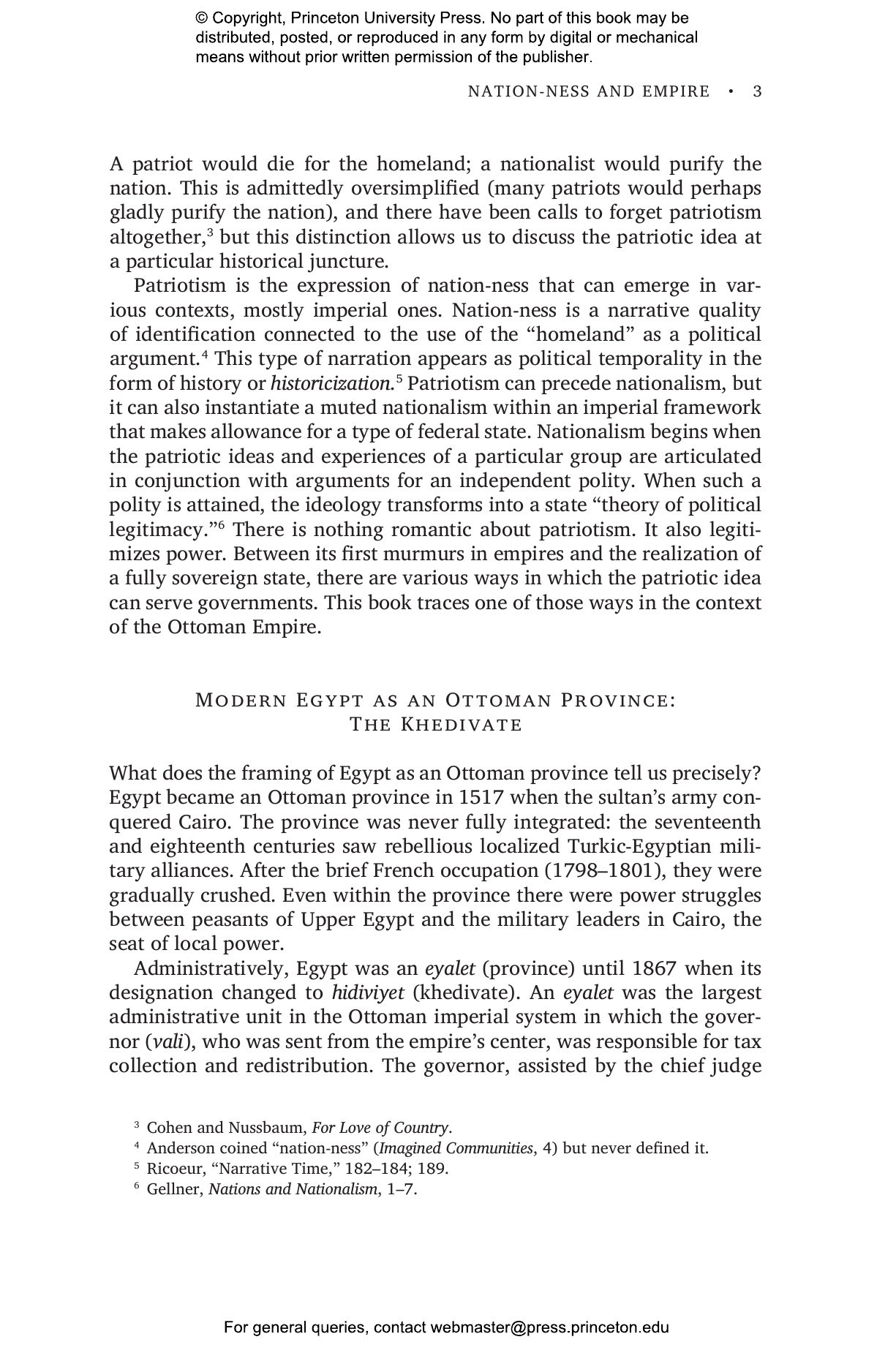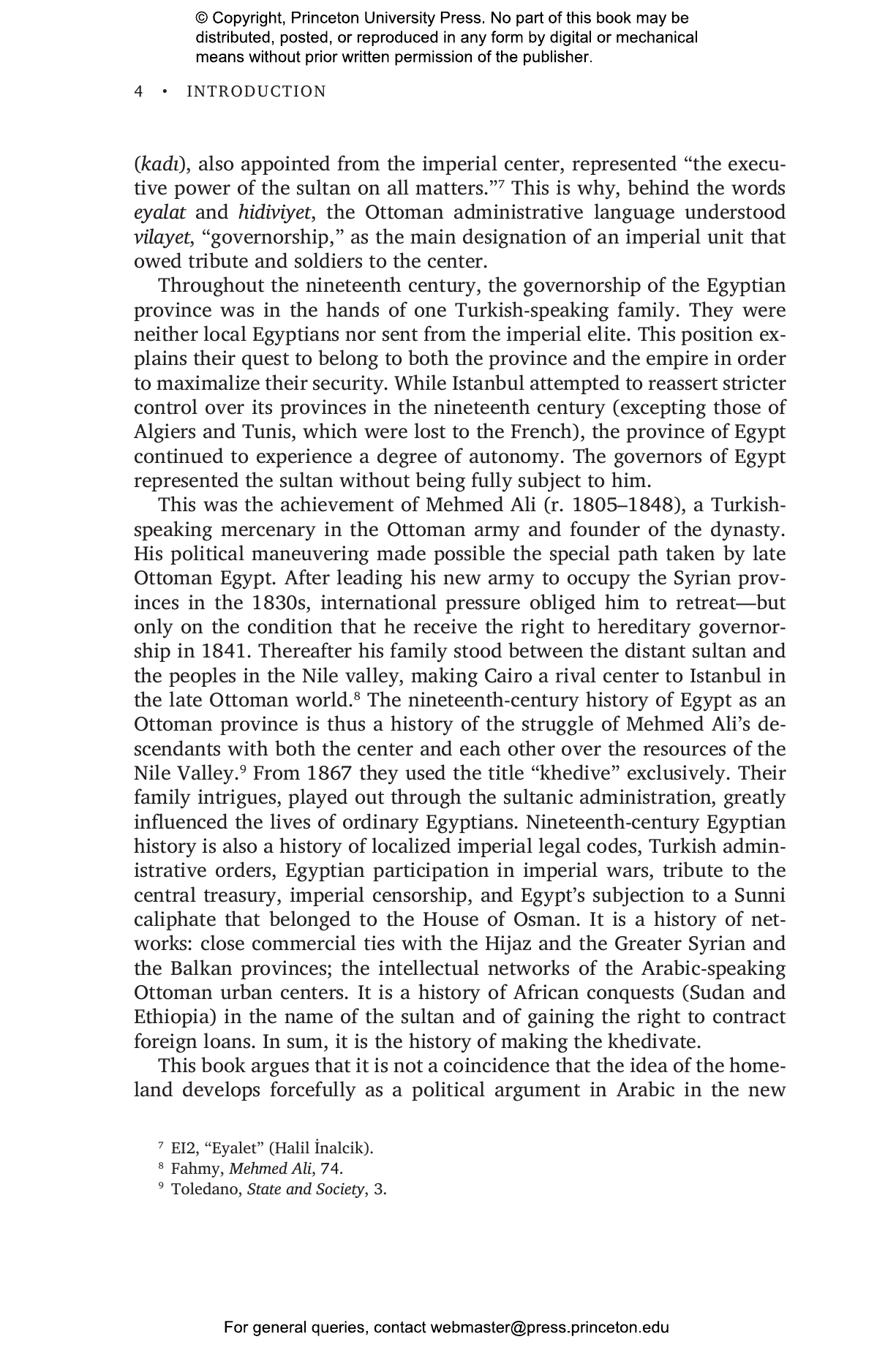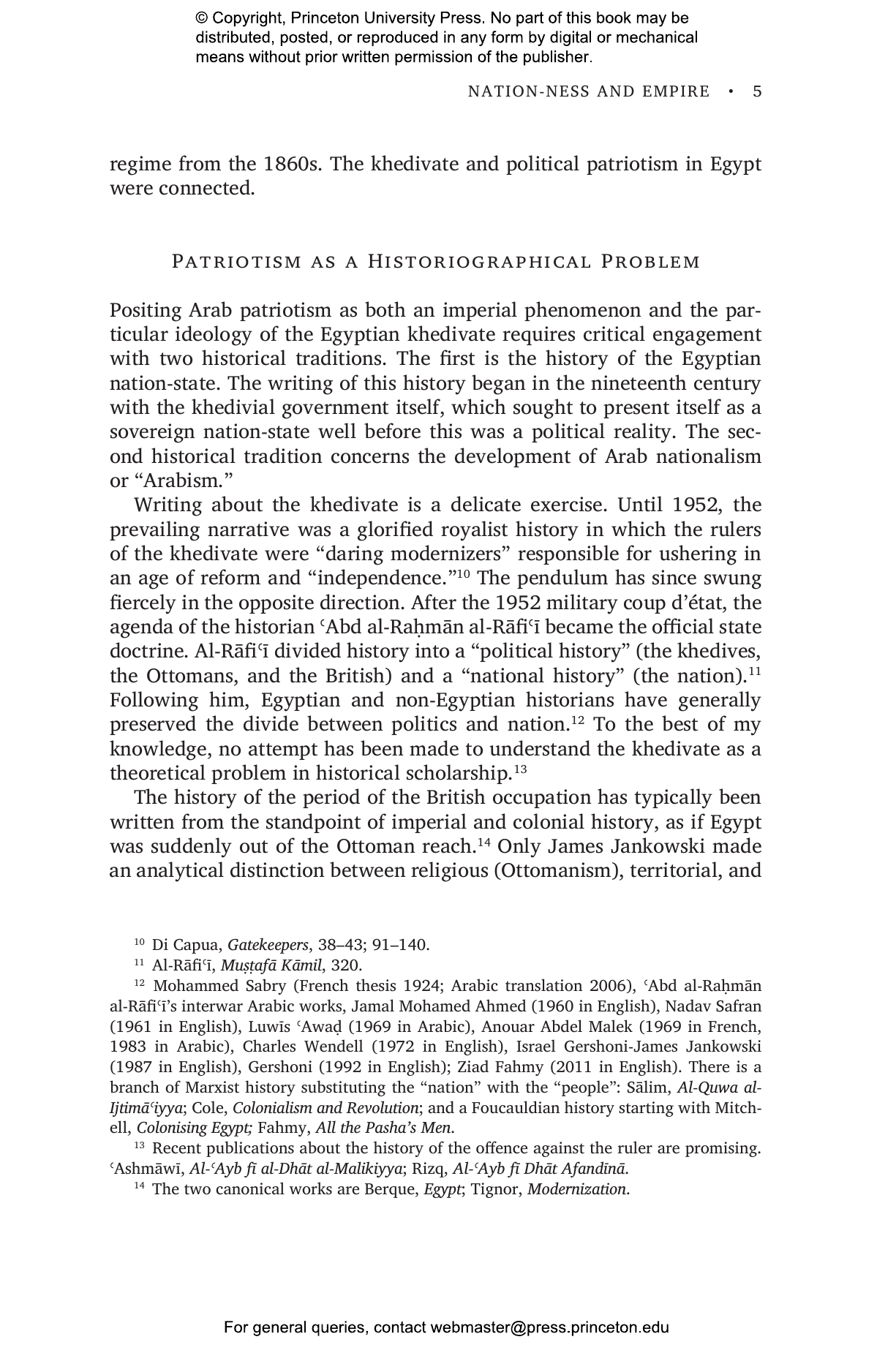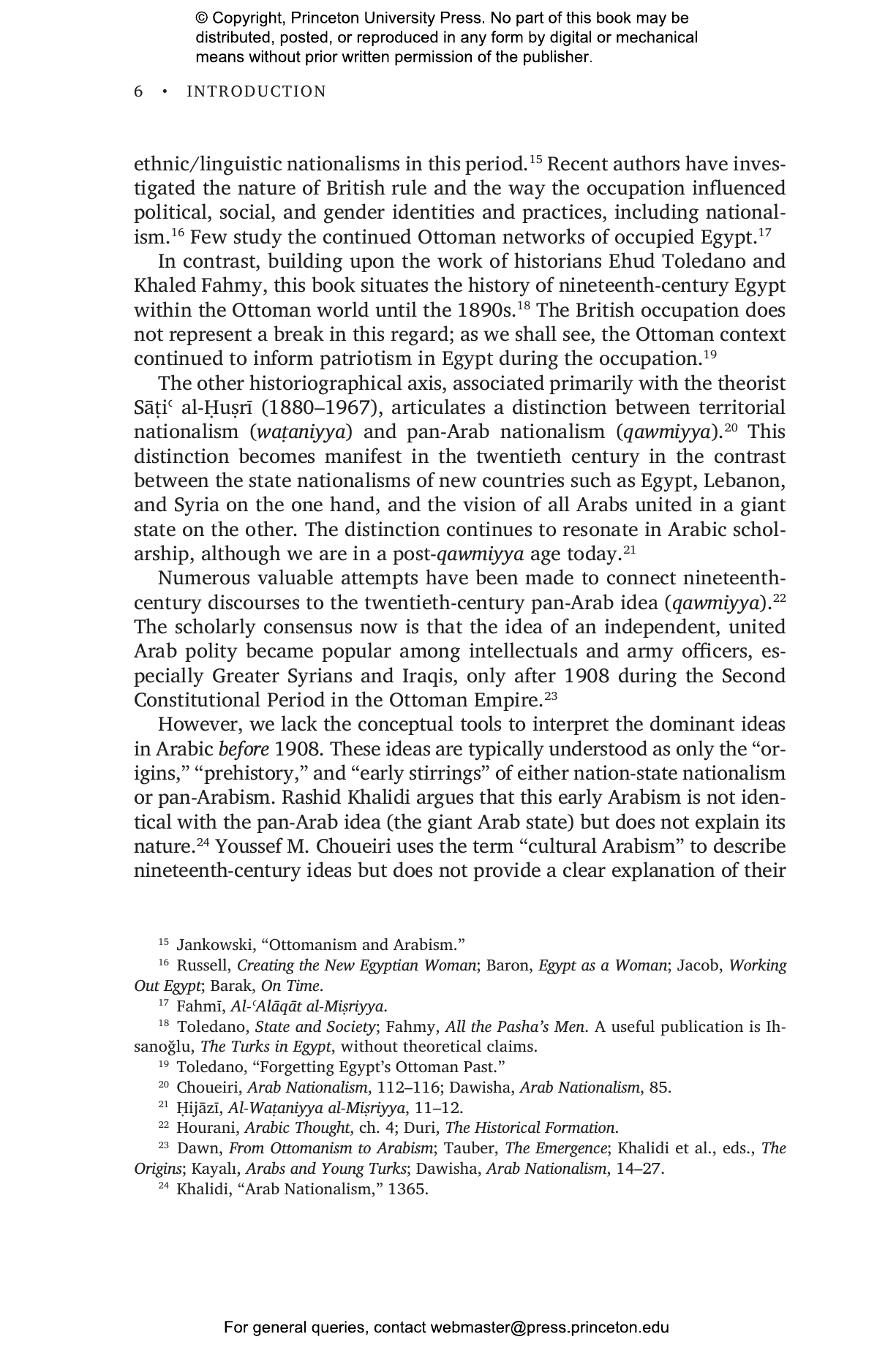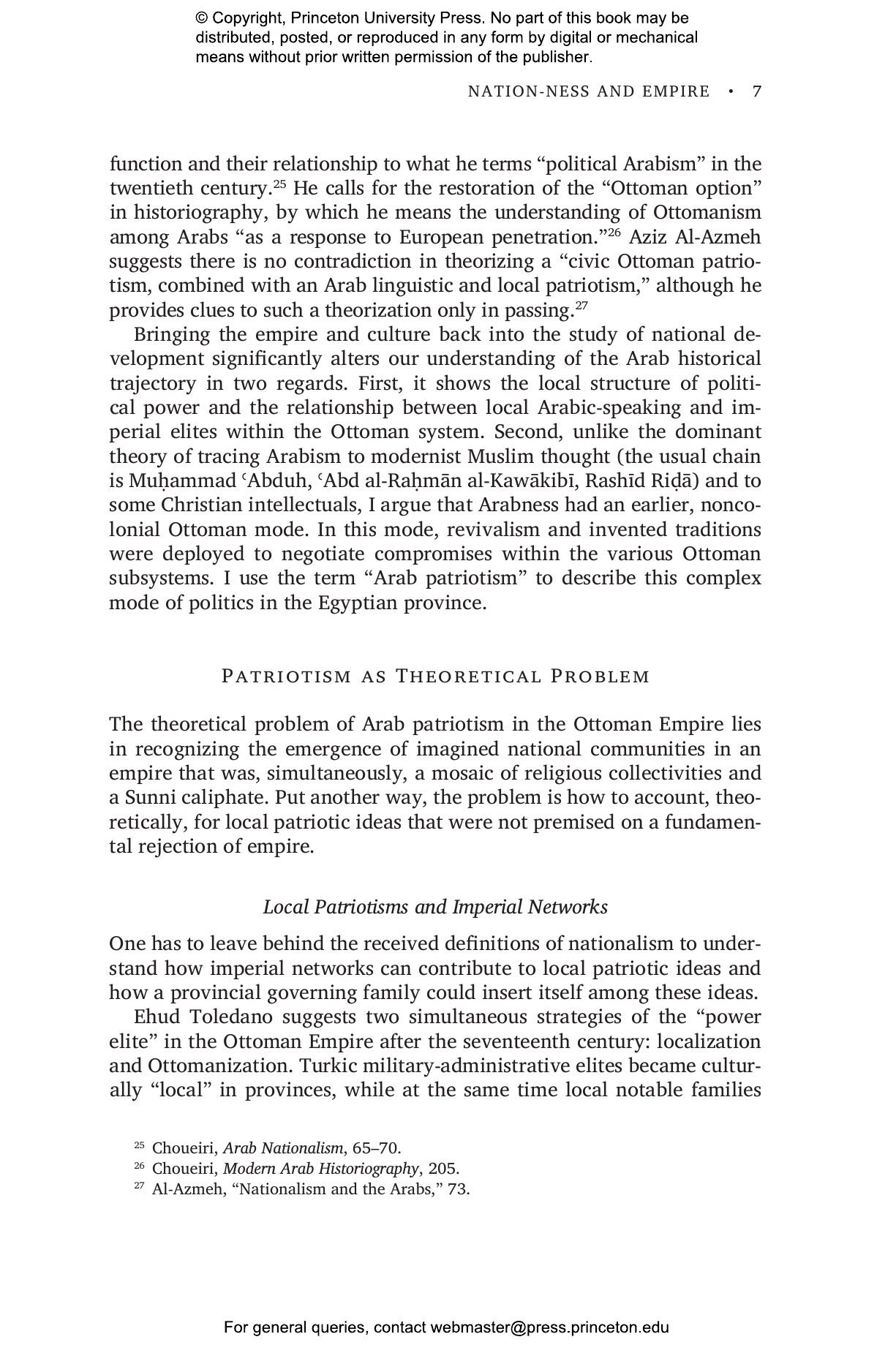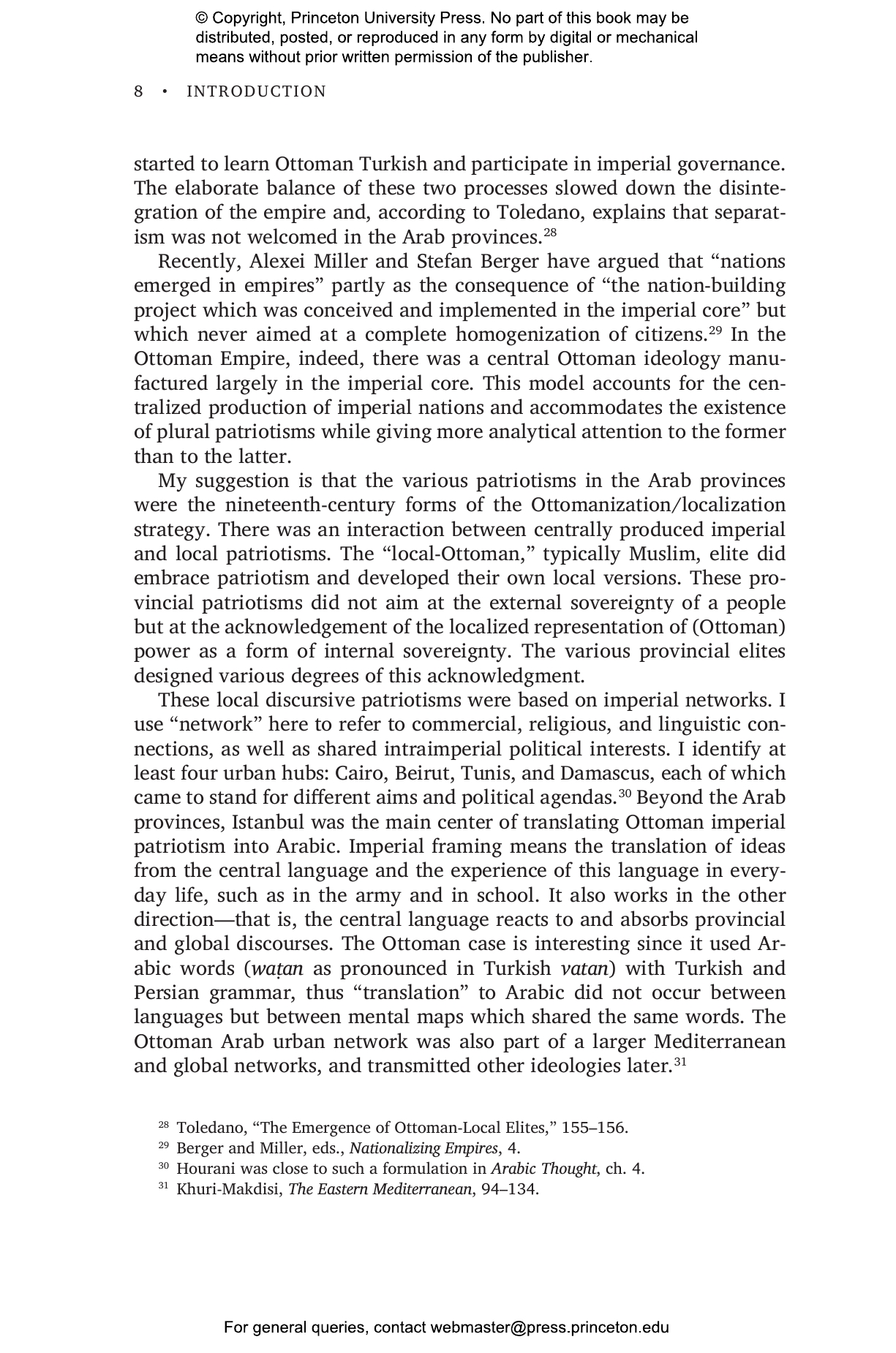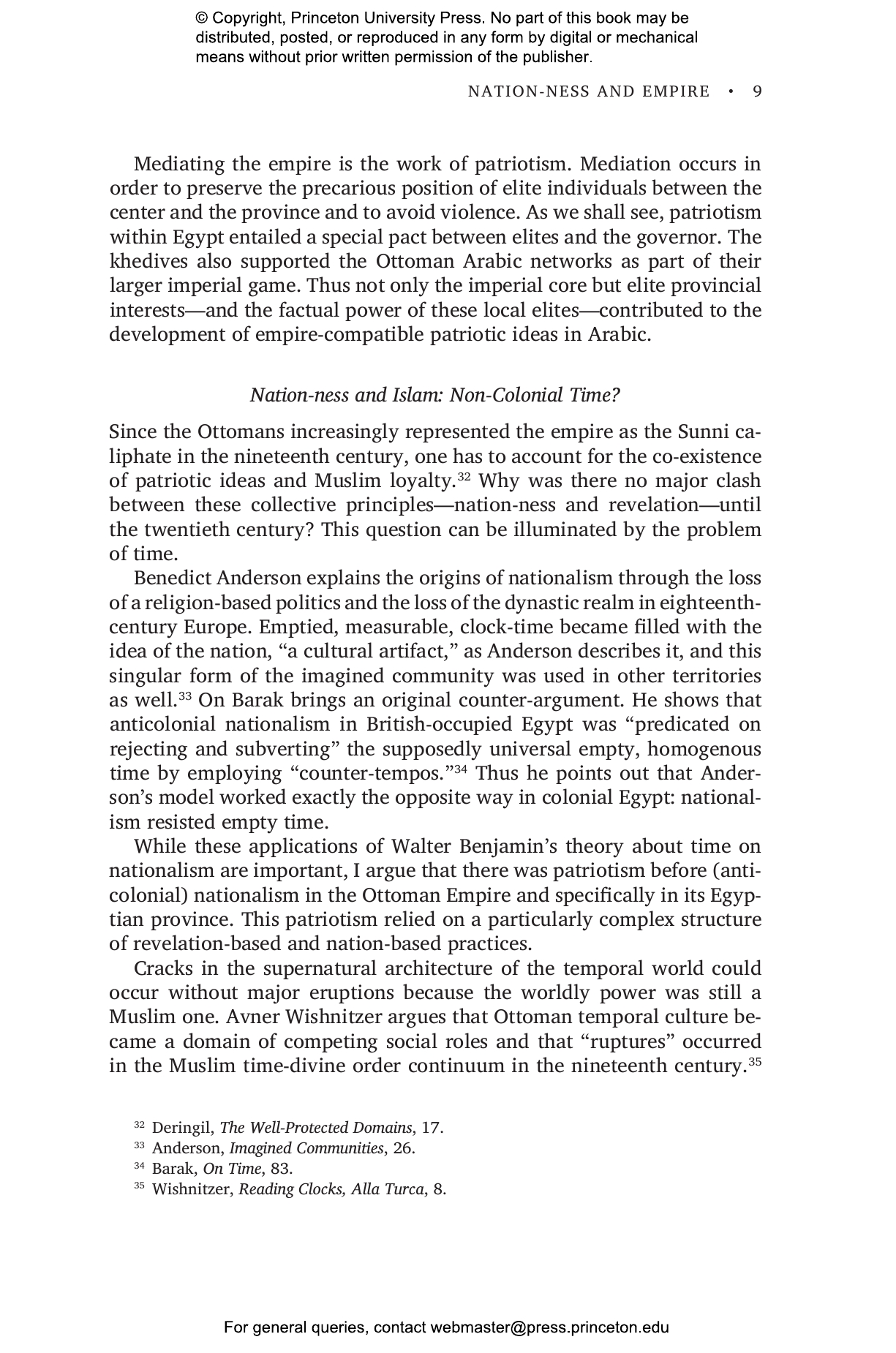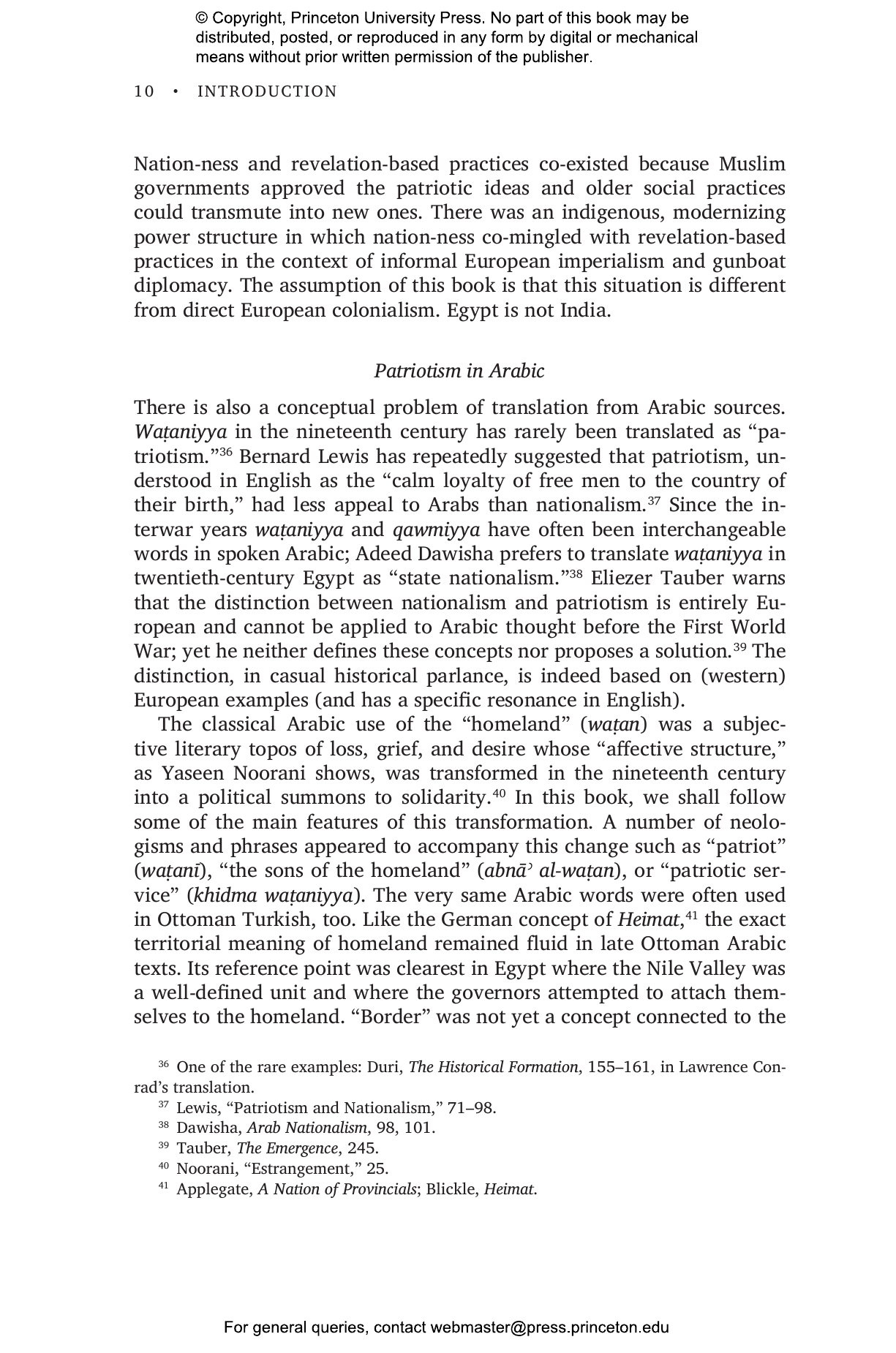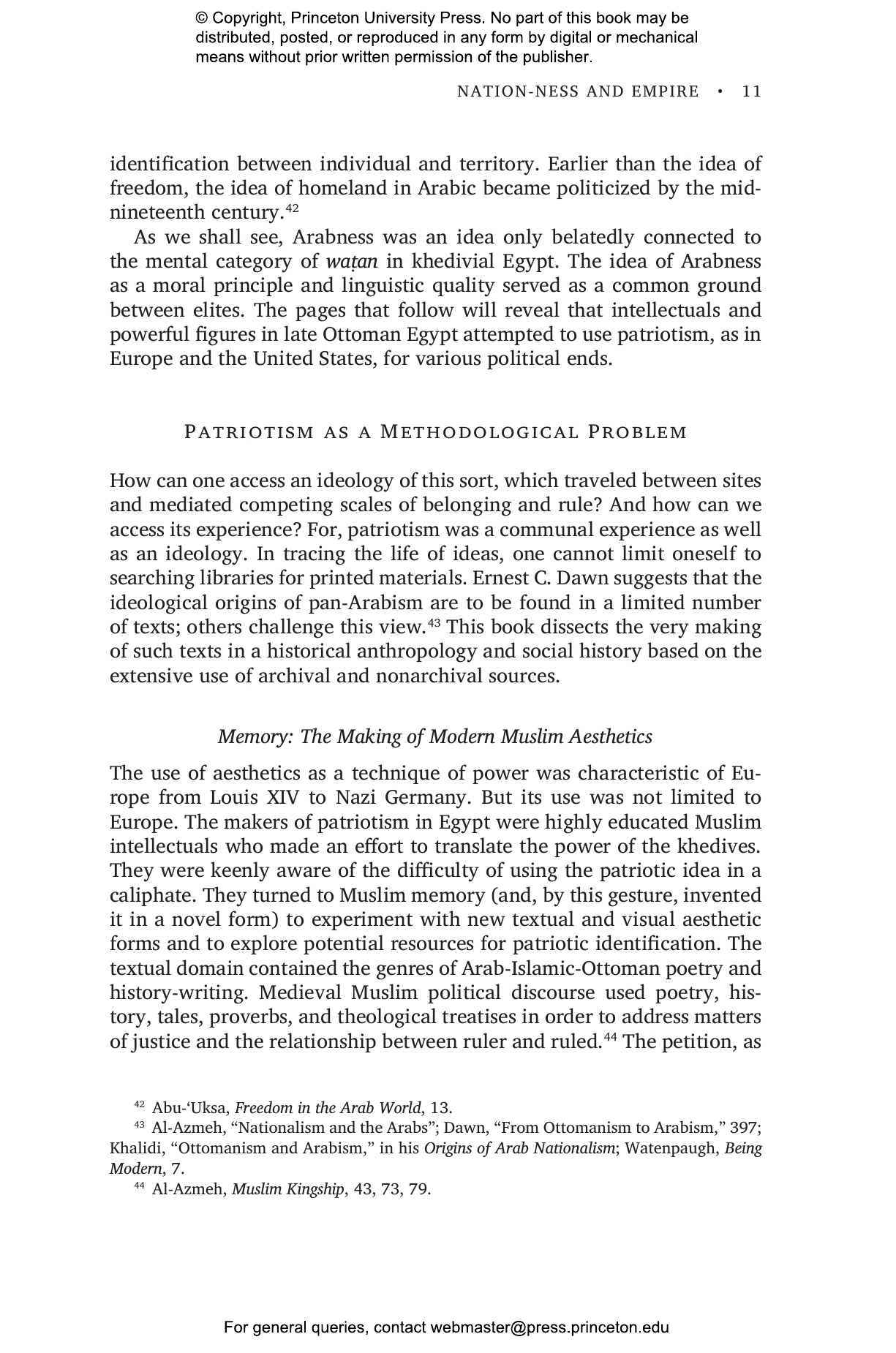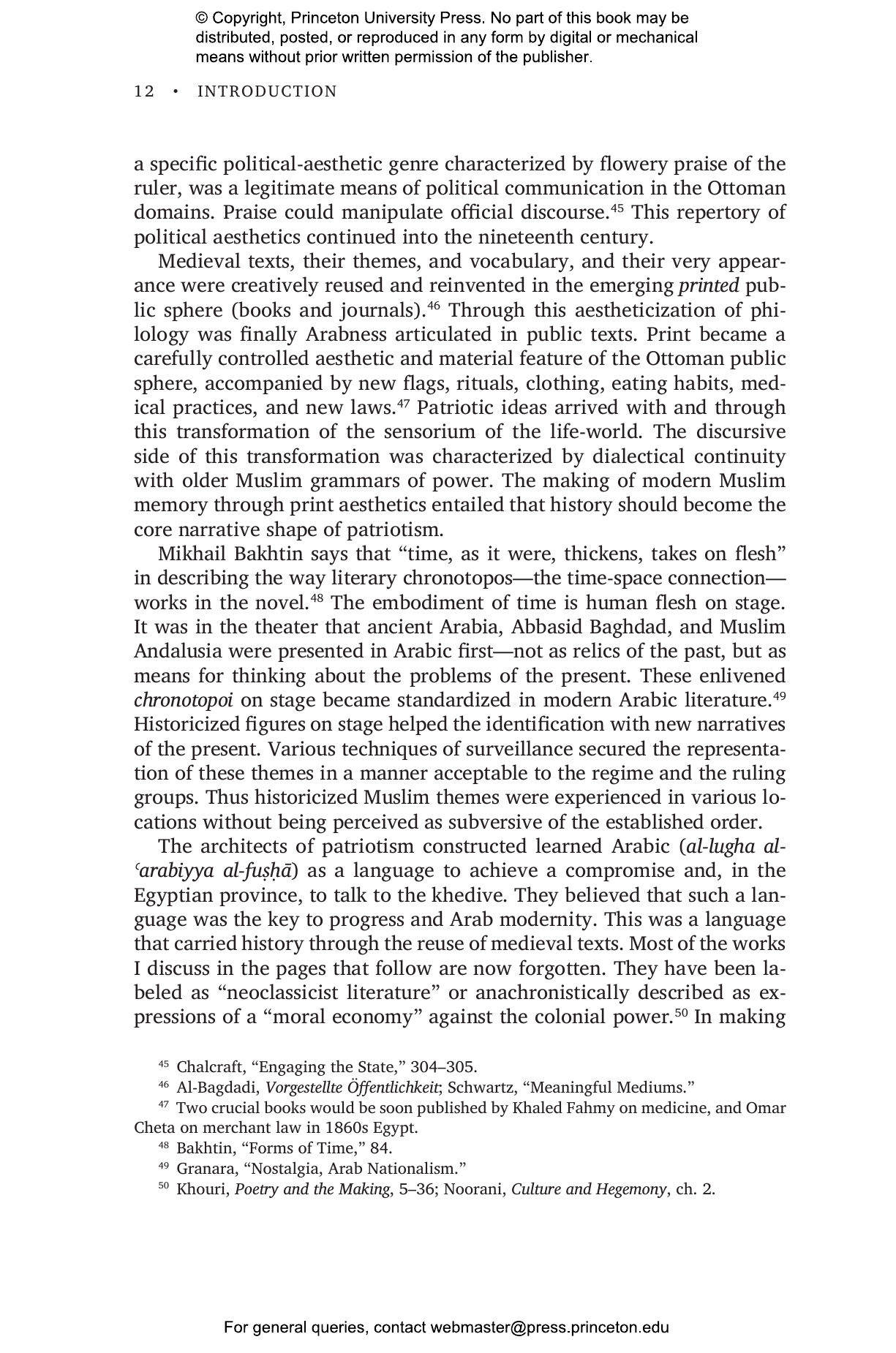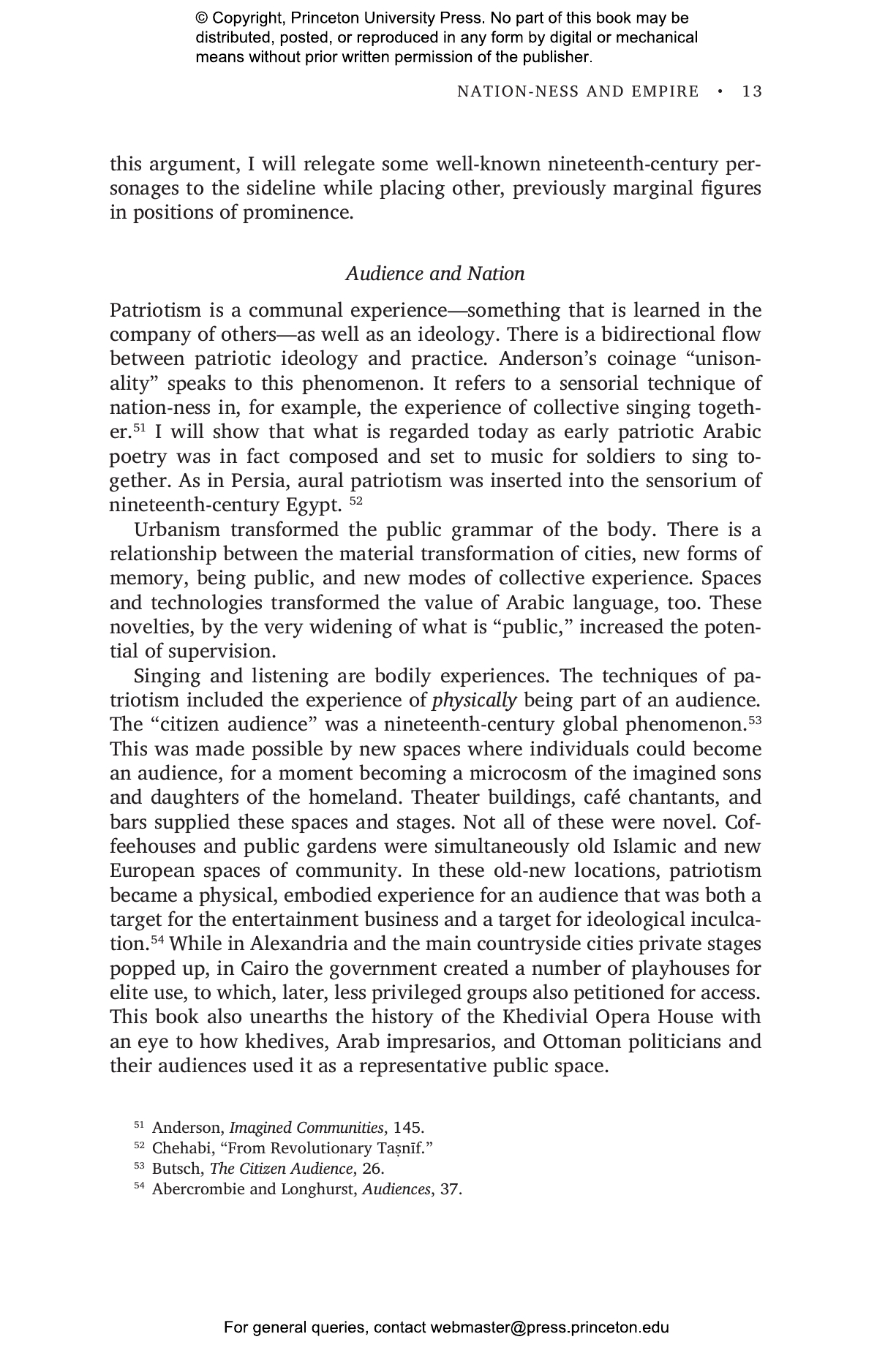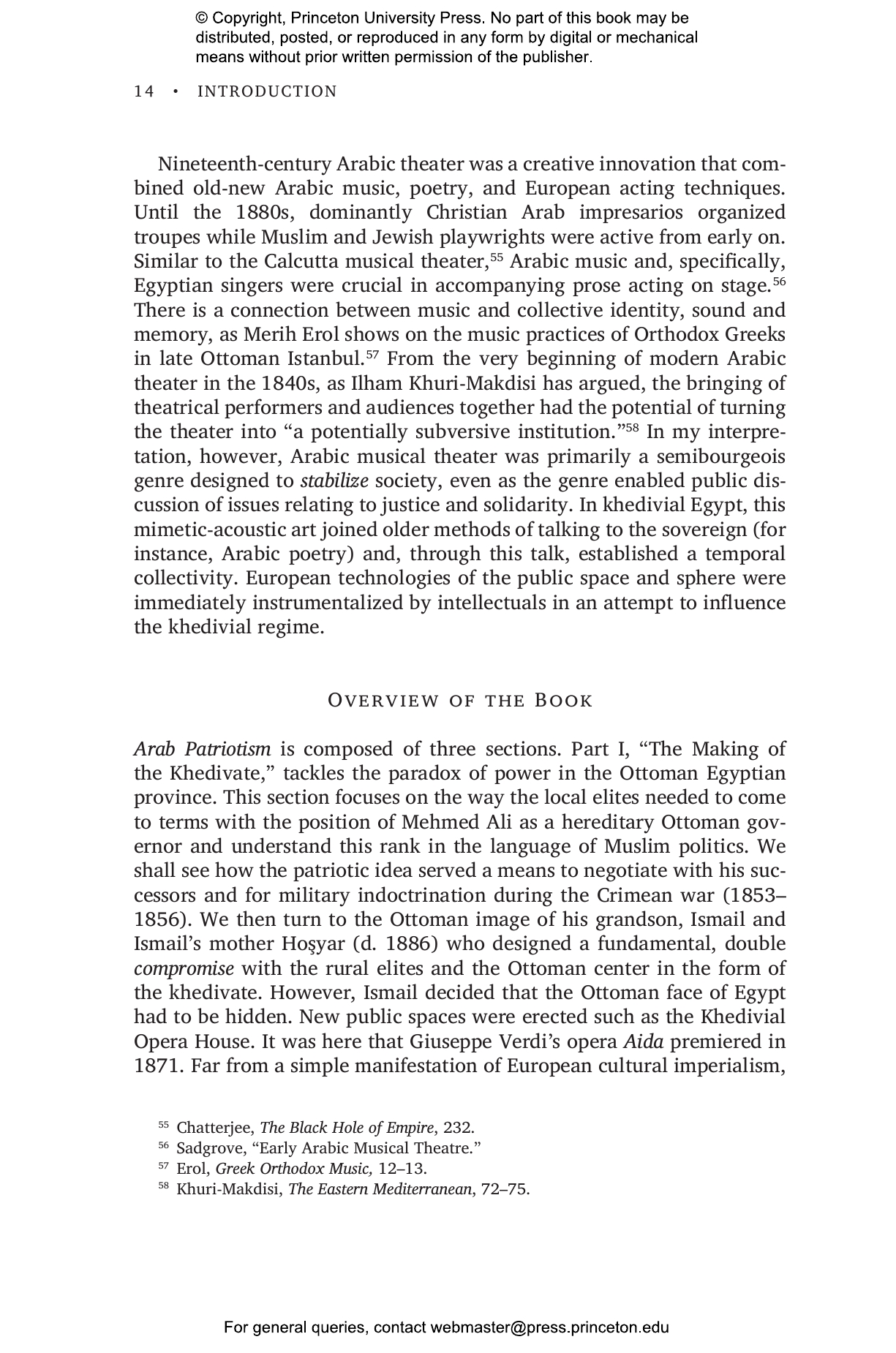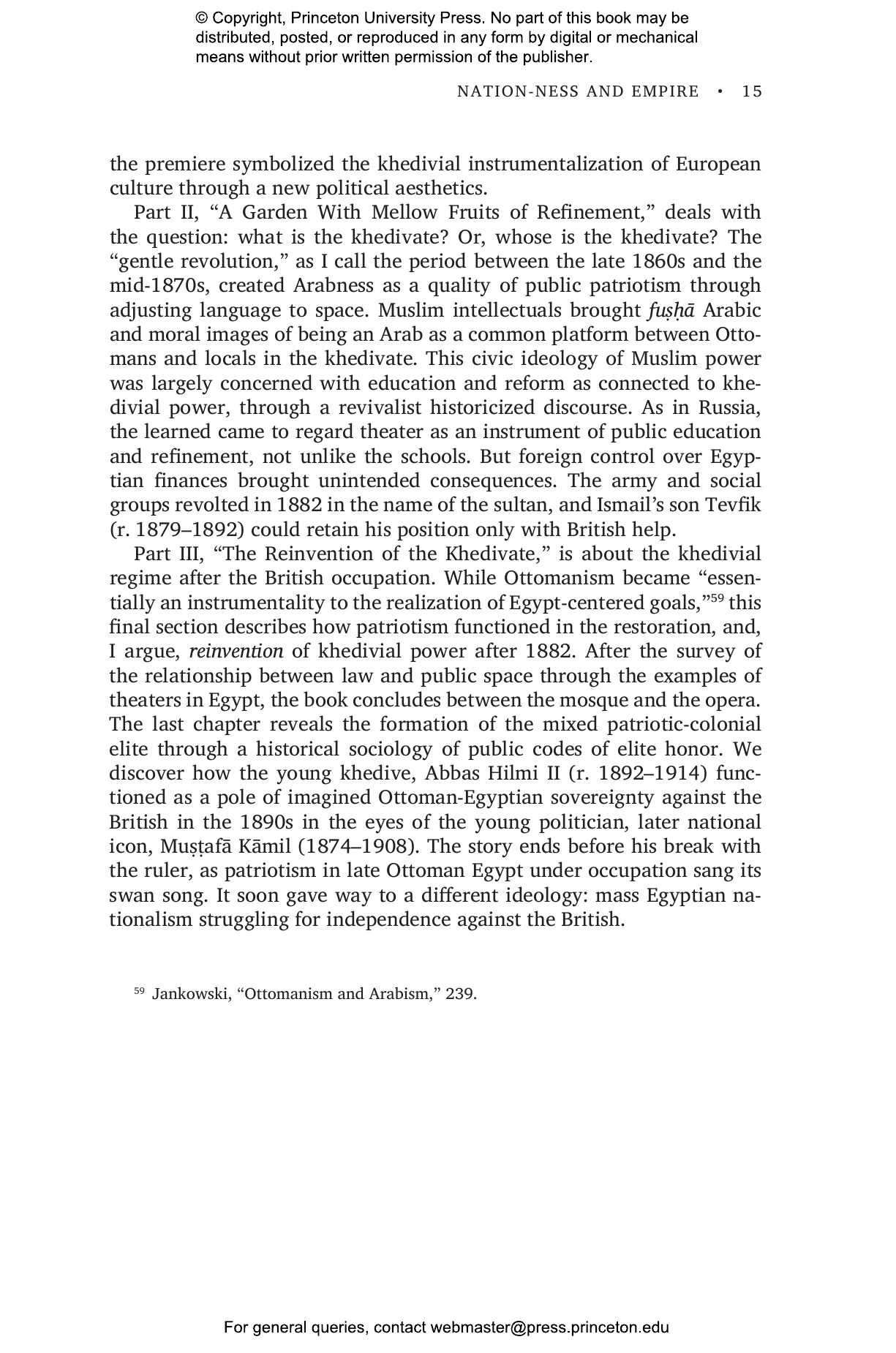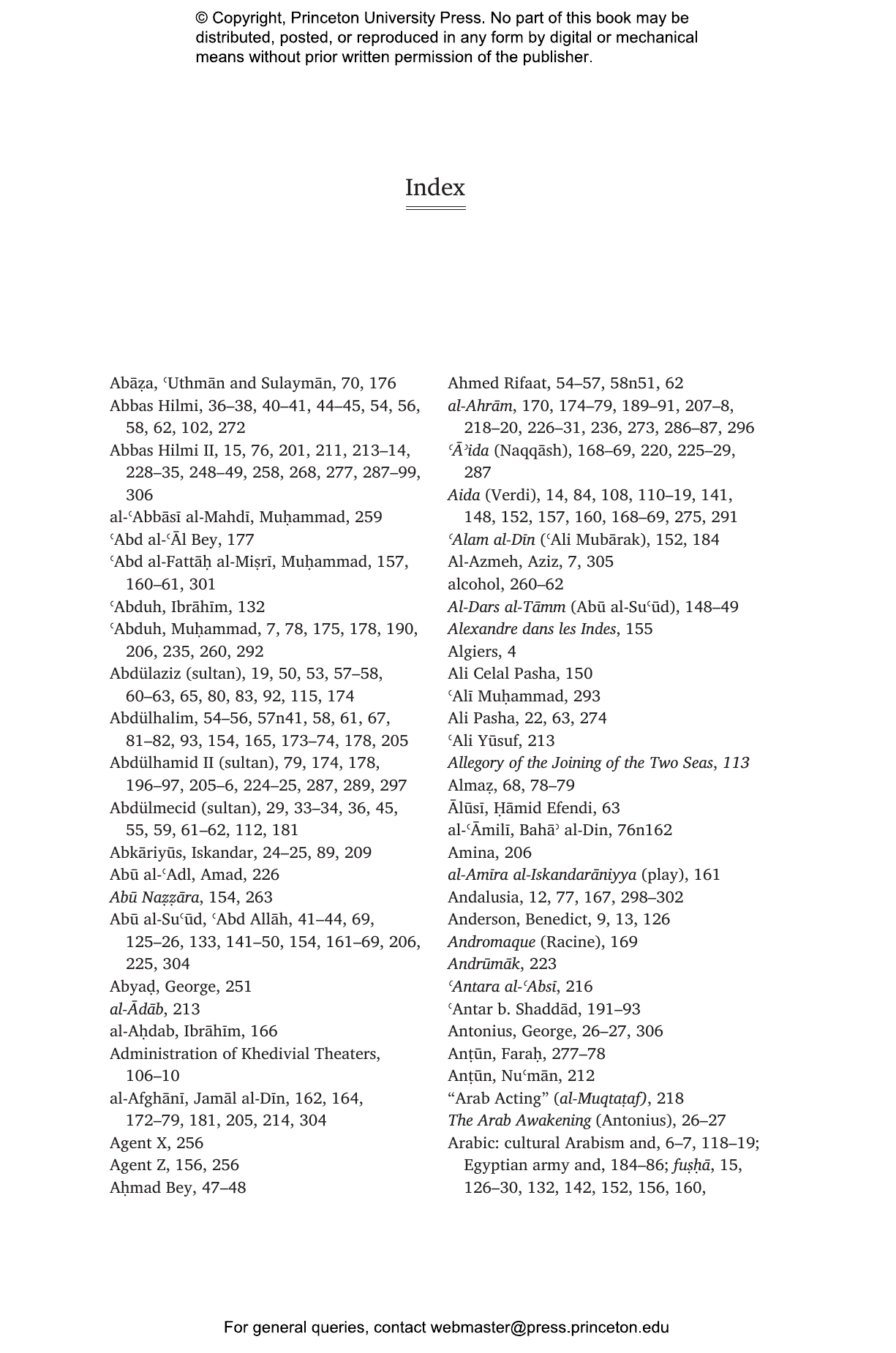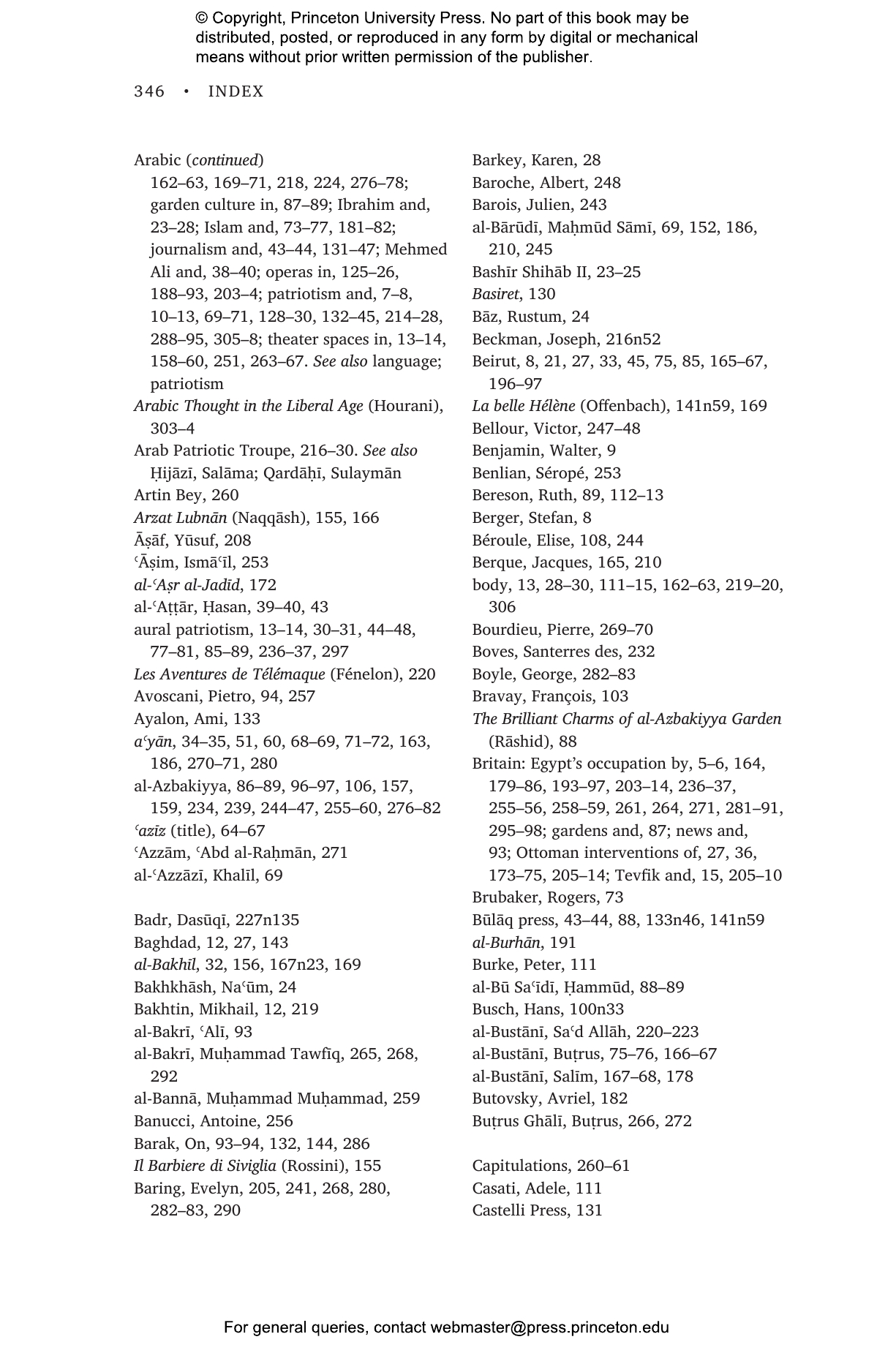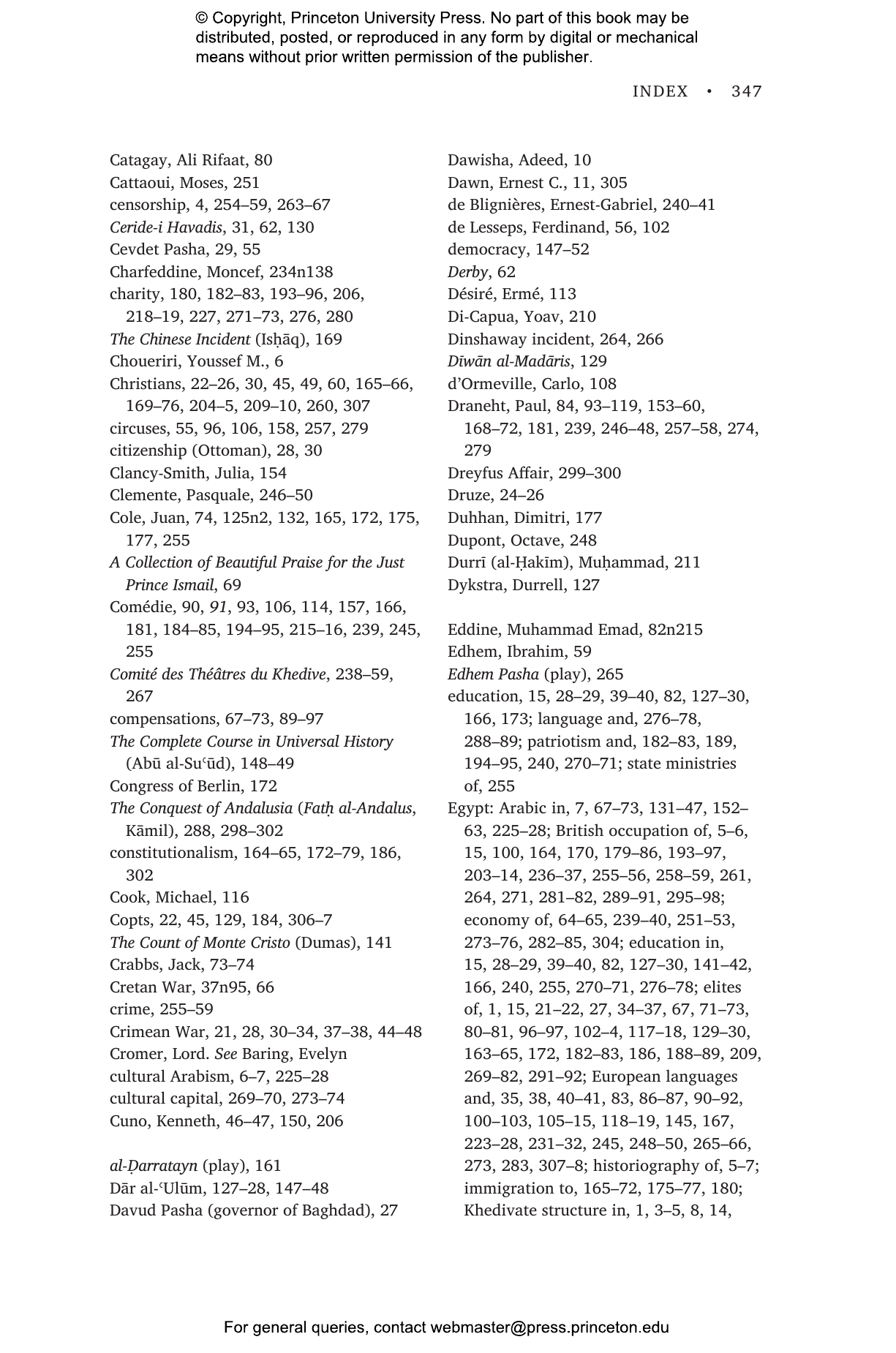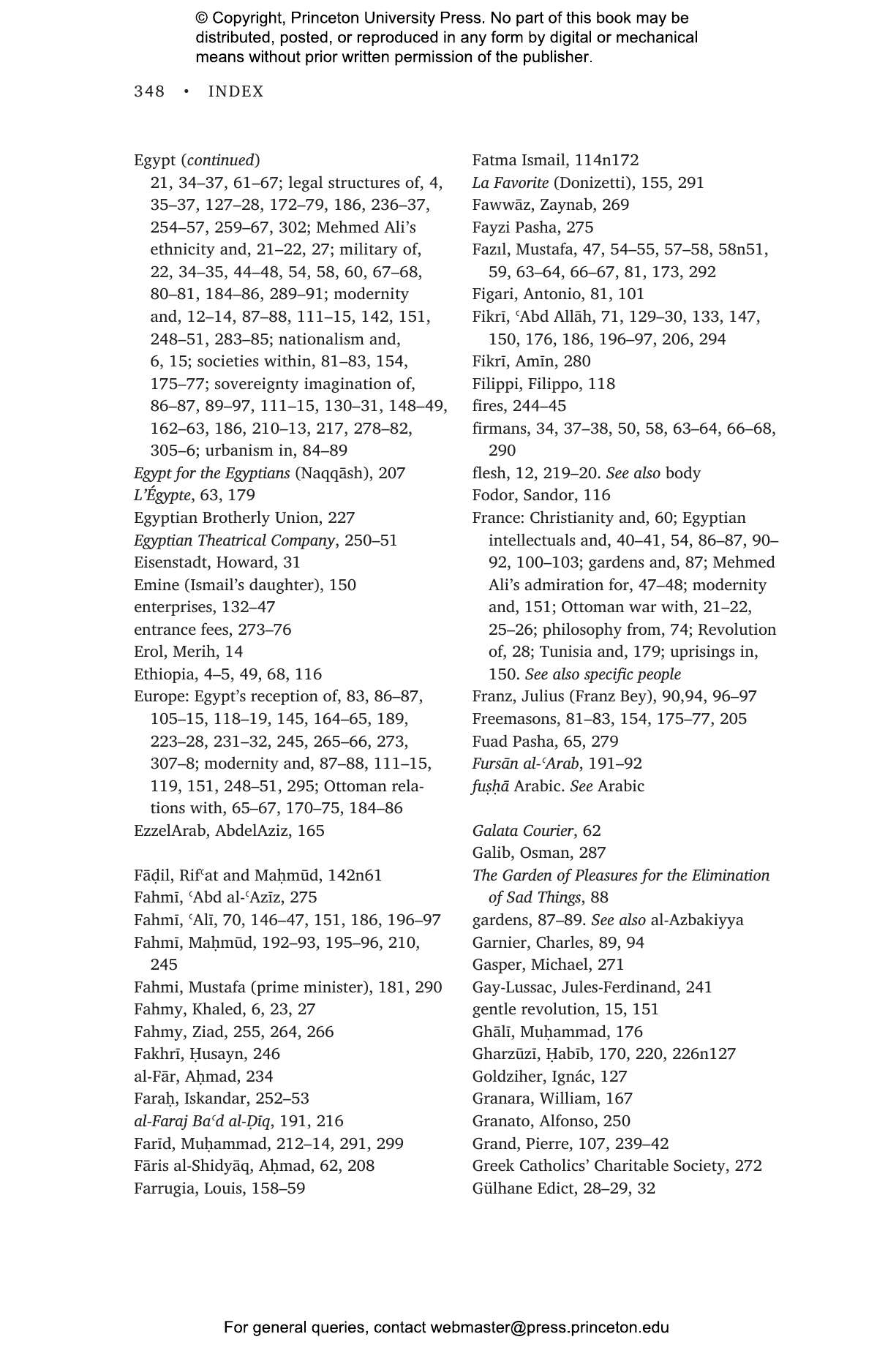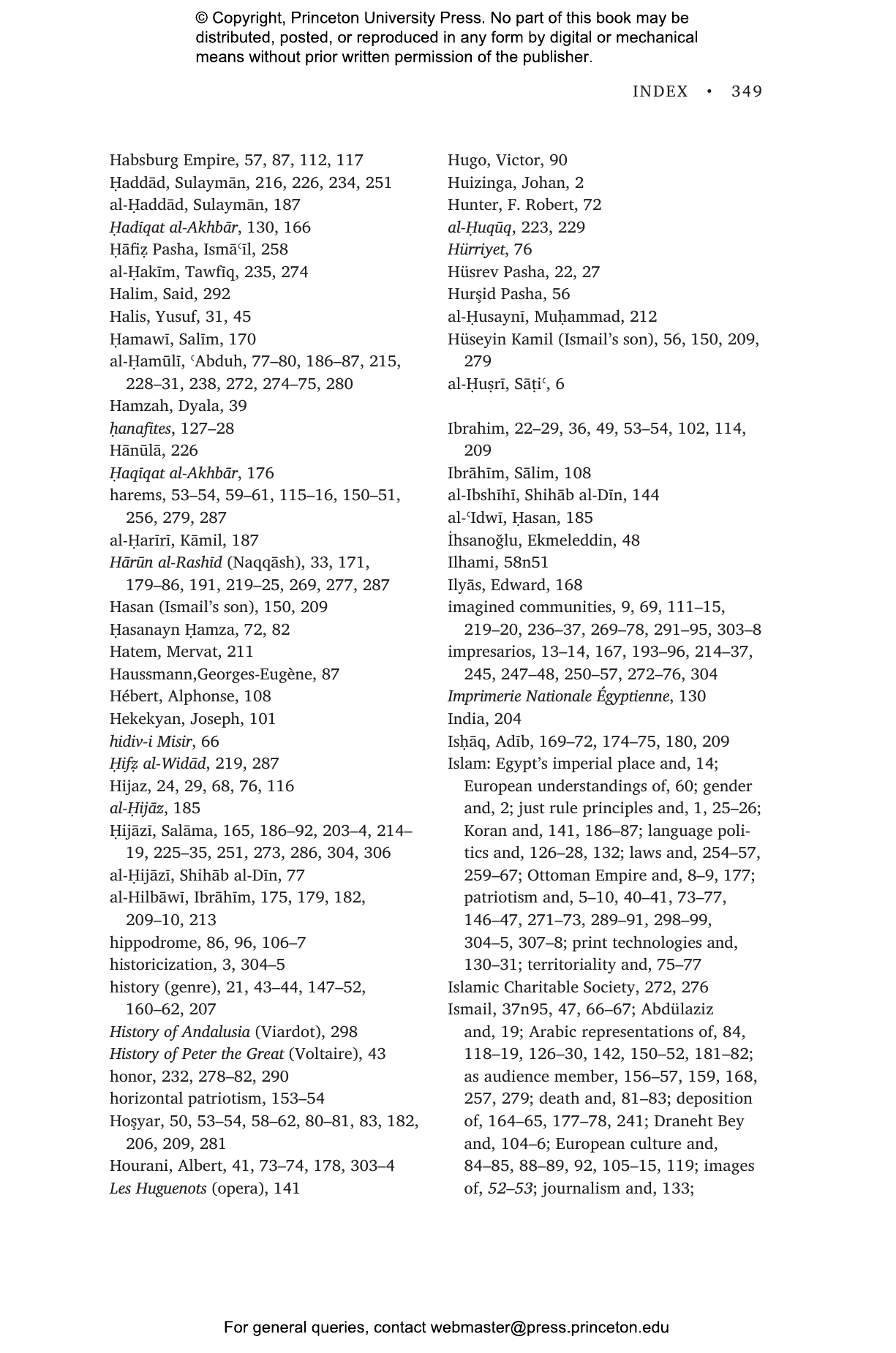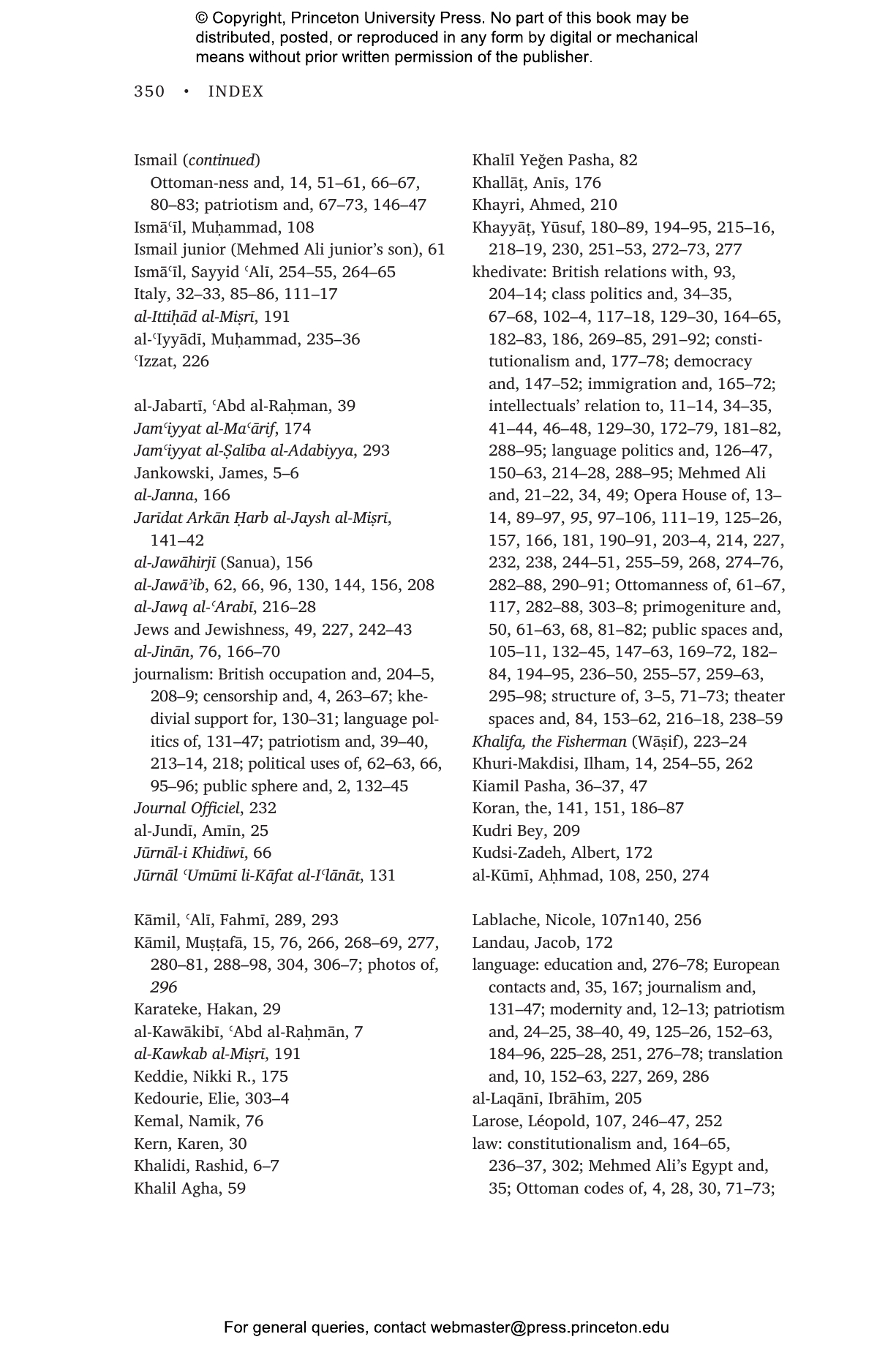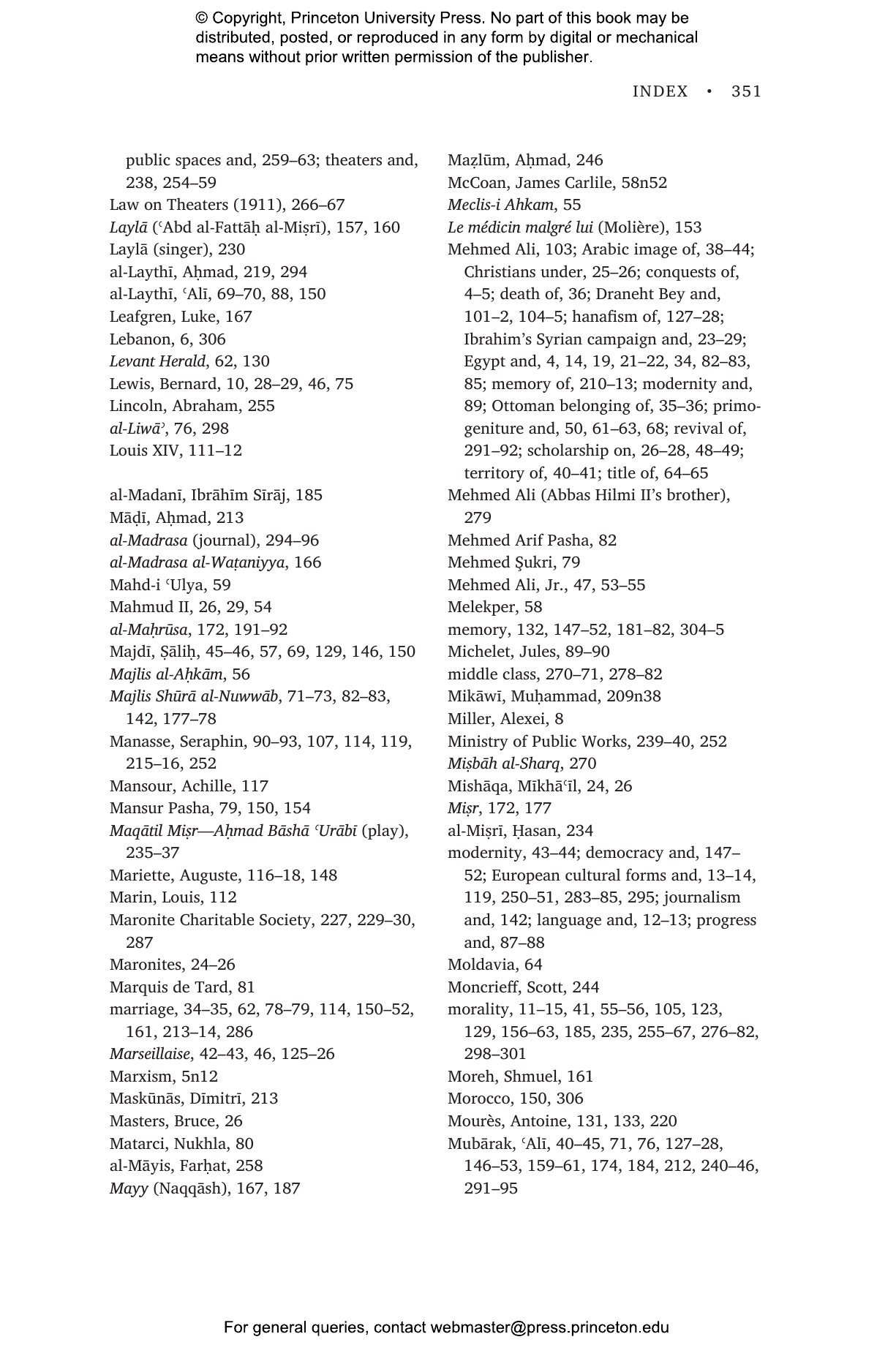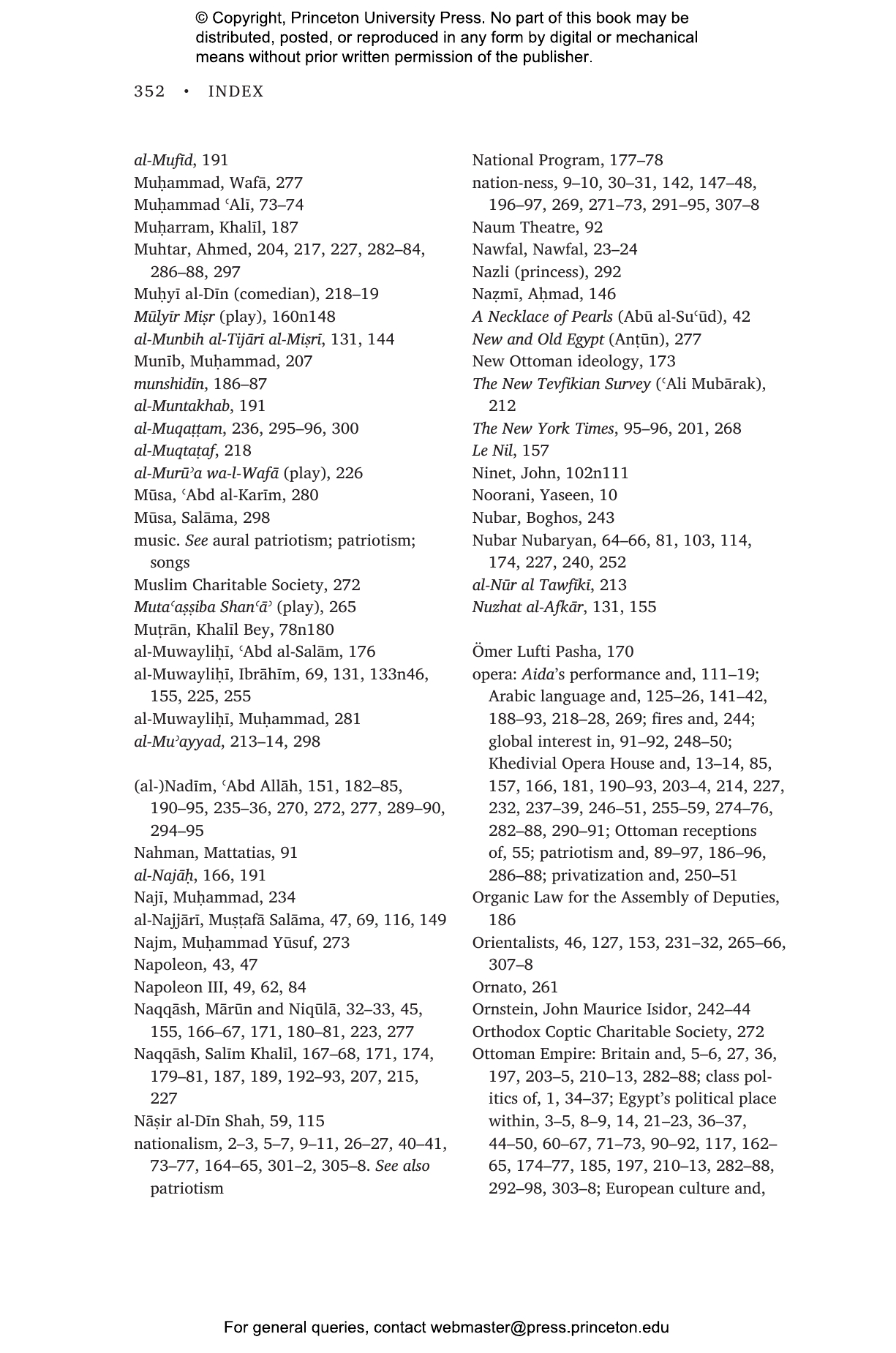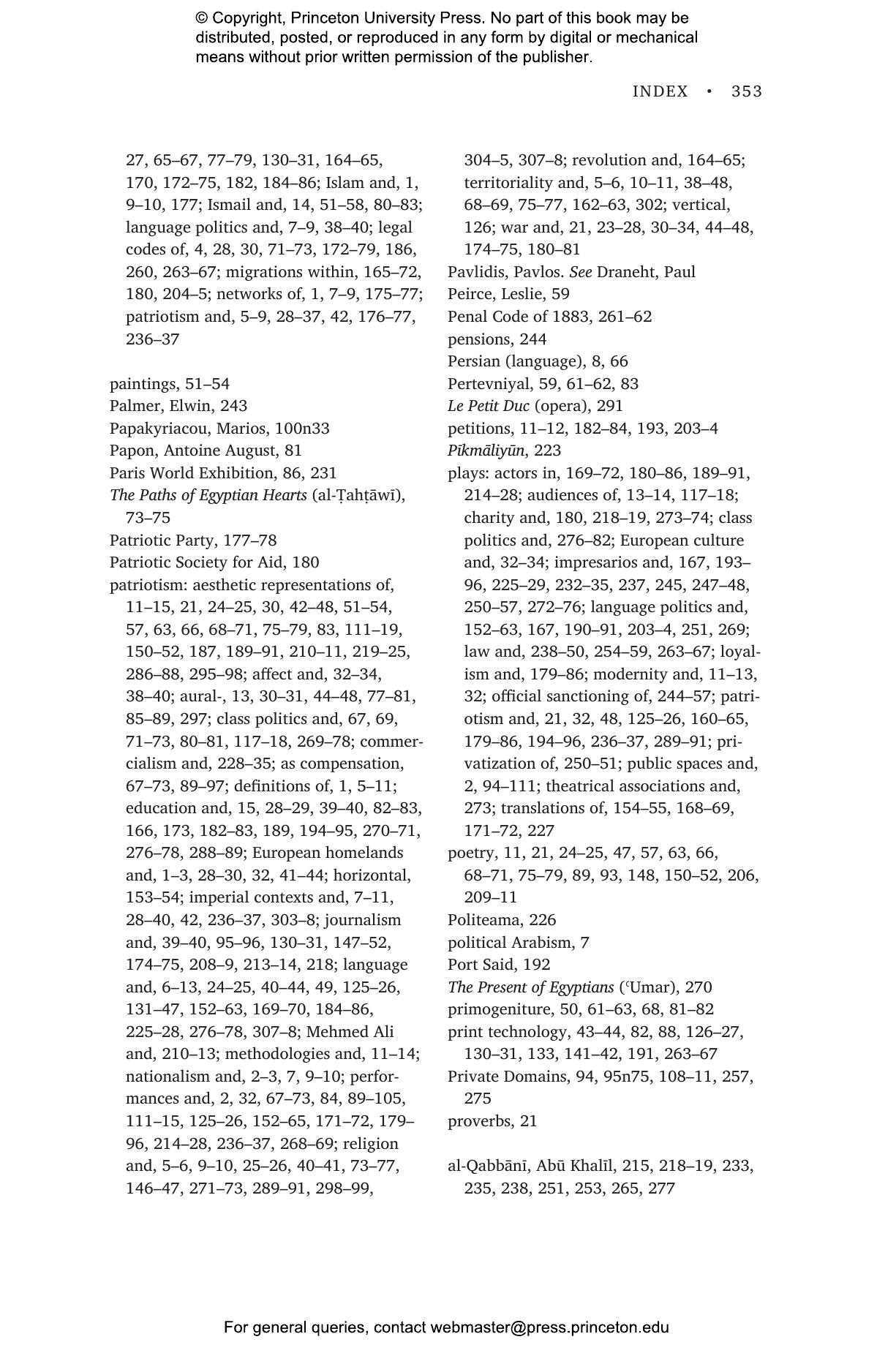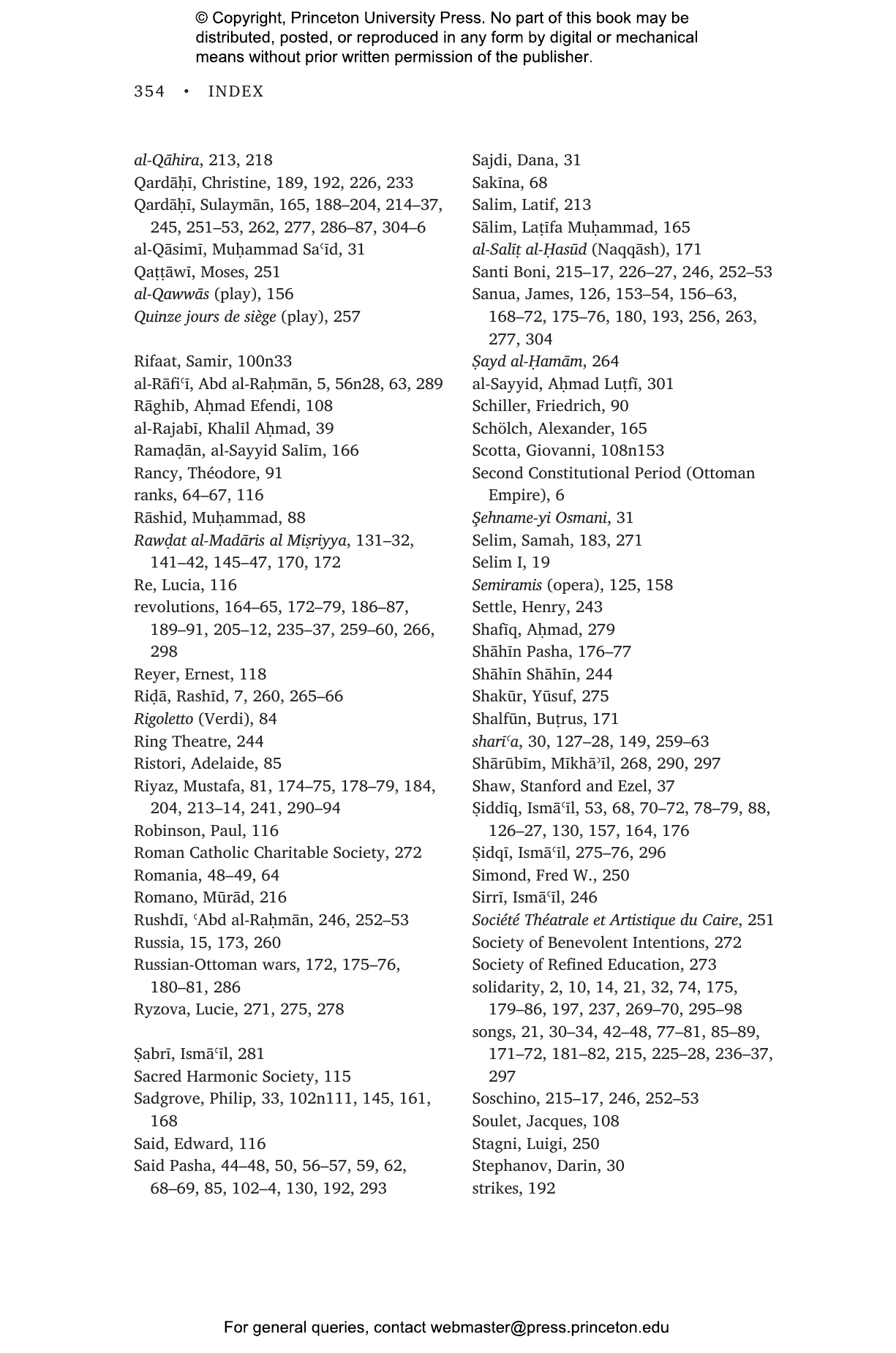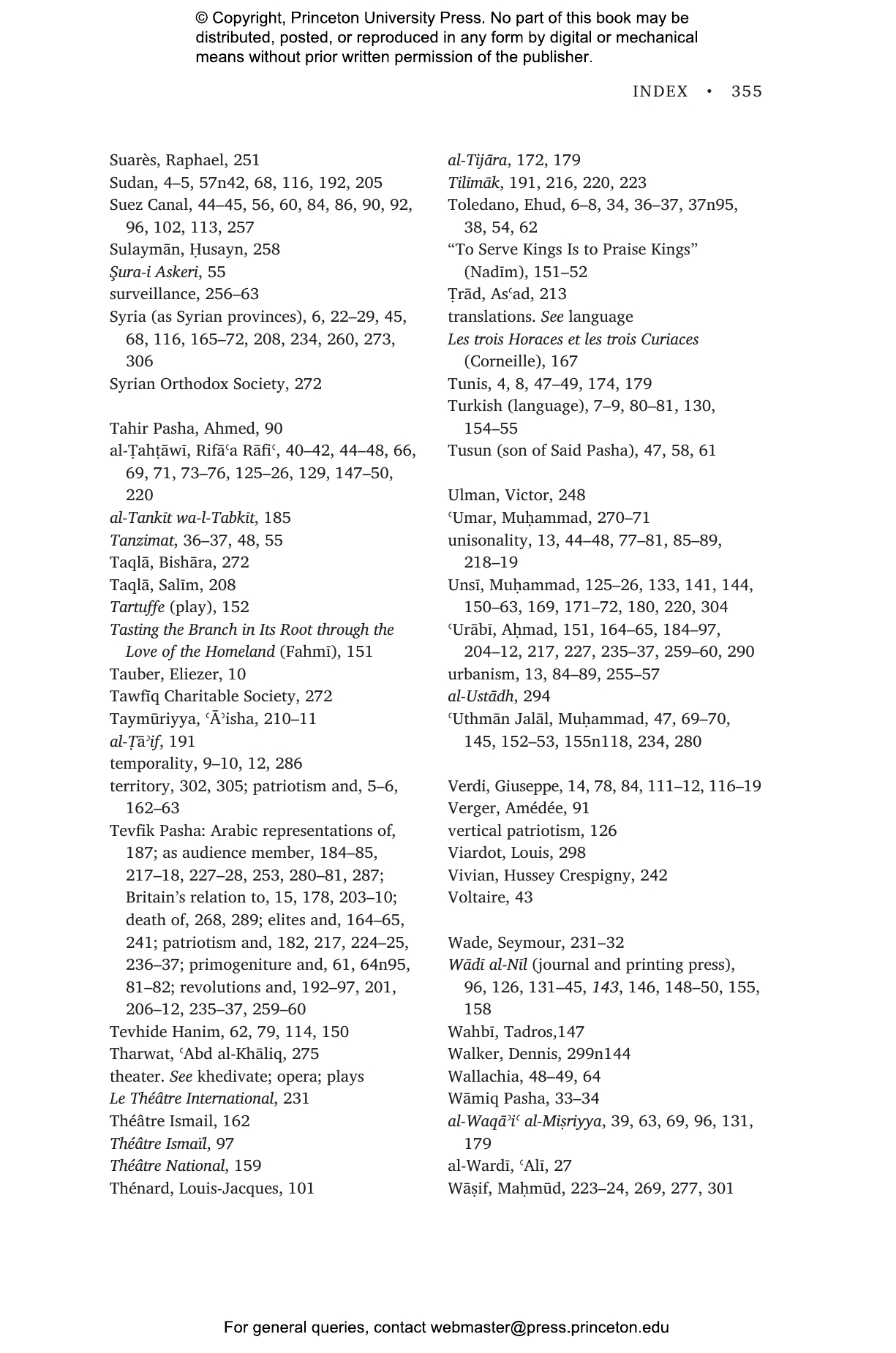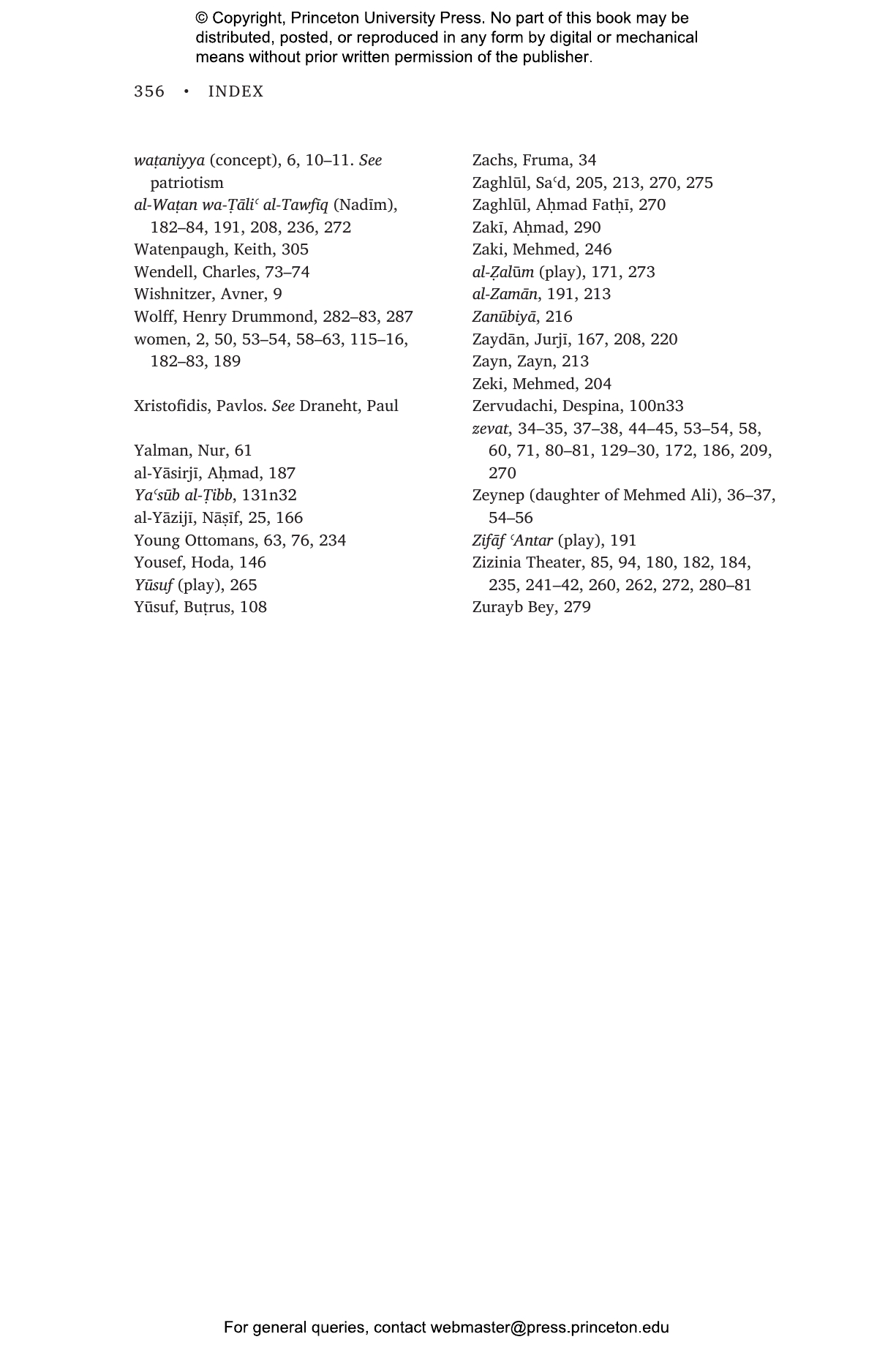Arab Patriotism presents the essential backstory to the formation of the modern nation-state and mass nationalism in the Middle East. While standard histories claim that the roots of Arab nationalism emerged in opposition to the Ottoman milieu, Adam Mestyan points to the patriotic sentiment that grew in the Egyptian province of the Ottoman Empire during the nineteenth century, arguing that it served as a pivotal way station on the path to the birth of Arab nationhood.
Through extensive archival research, Mestyan examines the collusion of various Ottoman elites in creating this nascent sense of national belonging and finds that learned culture played a central role in this development. Mestyan investigates the experience of community during this period, engendered through participation in public rituals and being part of a theater audience. He describes the embodied and textual ways these experiences were produced through urban spaces, poetry, performances, and journals. From the Khedivial Opera House’s staging of Verdi’s Aida and the first Arabic magazine to the ‘Urabi revolution and the restoration of the authority of Ottoman viceroys under British occupation, Mestyan illuminates the cultural dynamics of a regime that served as the precondition for nation-building in the Middle East.
A wholly original exploration of Egypt in the context of the Ottoman Empire, Arab Patriotism sheds fresh light on the evolving sense of political belonging in the Arab world.
Adam Mestyan is assistant professor of history at Duke University.
"This study is a significant step in clarifying identity in the Arab provinces during the 19th century regarding both the Ottoman Empire and within the provinces themselves."—Choice
"Mestyan is at his best when he excavates and reconstructs lines connecting diverse and often obscure individuals to equally diverse institutions of power."—Wilson Chacko Jacob, American Historical Review
"Adam Mestyan’s Arab Patriotism is an ambitious project on the Ottoman province of Egypt . . . in the nineteenth century."—Side Emre, Bustan
"Arab Patriotism is an ambitious study. Dealing with Egyptian history from the 1830s to the 1890s, it addresses two hitherto relatively unexplored subjects. . . . Throughout, the study presents fresh material and opens new perspectives on Egyptian history. The book is a significant contribution to the history of modern Egypt."—James Jankowski, Journal of Arabic Literature
"A superb scholarly achievement, Arab Patriotism displays a thorough understanding of nineteenth-century Ottoman-Egyptian elite history, framing the emergence of Arab nationalism within Ottoman-Arab patriotism. Based on an impressive array of sources, this is arguably the most important contribution to the discourse on modern Egyptian and Middle East sociopolitical and cultural history in recent years."—Ehud R. Toledano, Tel Aviv University
"Arab Patriotism is much more than just an outstanding contribution to the modern history of Egypt. Mestyan weaves together a narrative about power and the arts, social history, and the history of the media to form a dense and colorful tapestry of sophisticated argument. The nineteenth-century Mediterranean region emerges in a new and unexpected light."—Jürgen Osterhammel, author of The Transformation of the World
"Filling a major gap in the historiography of modern Egypt, this engaging book fuses cultural and political history, Egypt's place in the late Ottoman world, and the emergence of Arab identity politics. This is one of the most exciting new works that I have read in recent years."—Eugene Rogan, author of The Fall of the Ottomans
"Examining the rise of patriotism in nineteenth-century Egypt, Arab Patriotism delves into Egypt's identity during this crucial period. Mestyan paints a detailed and animated picture of a rich cultural landscape that was intricately connected to a fraught political scene. This pioneering and compelling book presents original work, previously unknown even by specialists of early modern Egyptian history."—Khaled Fahmy, American University in Cairo
